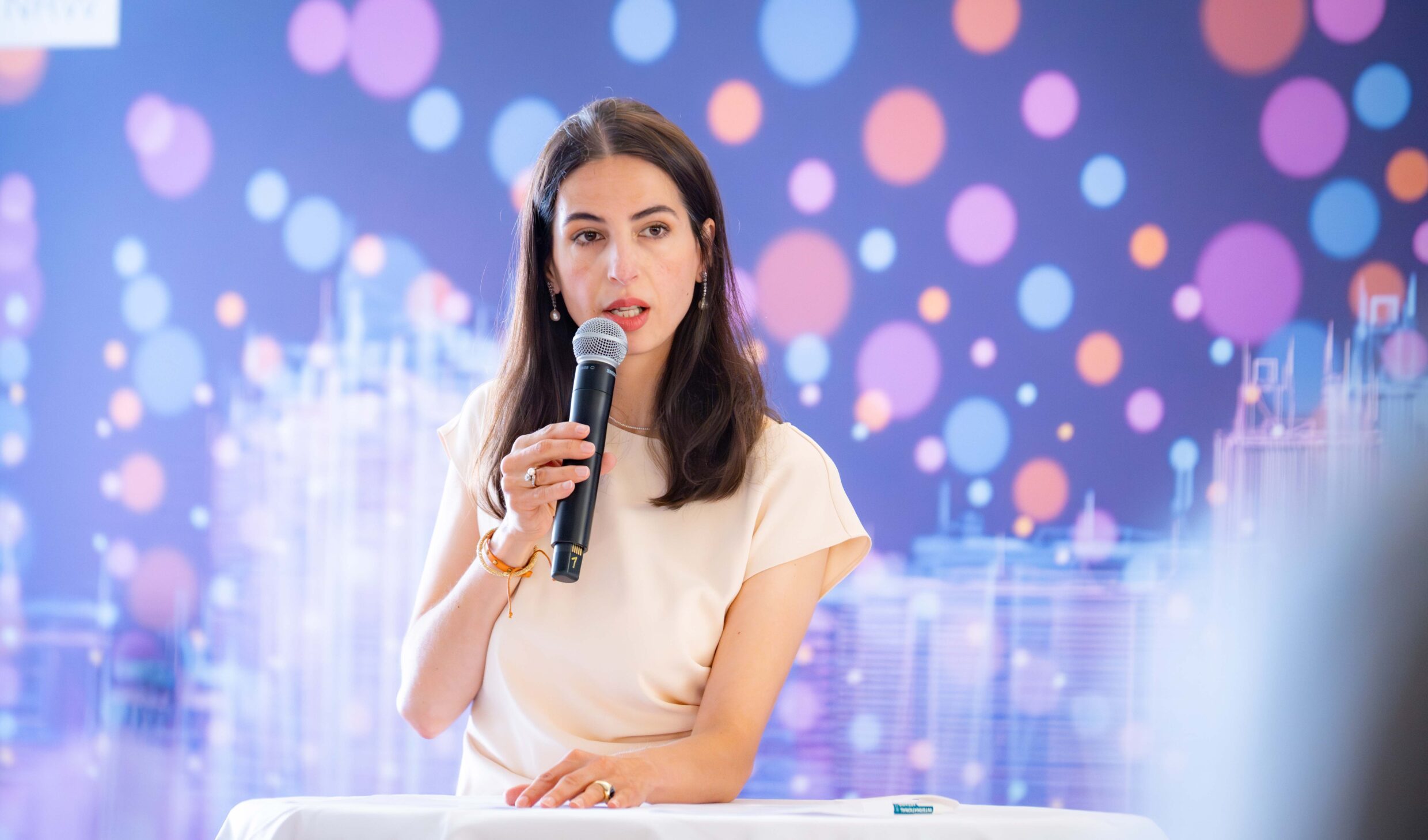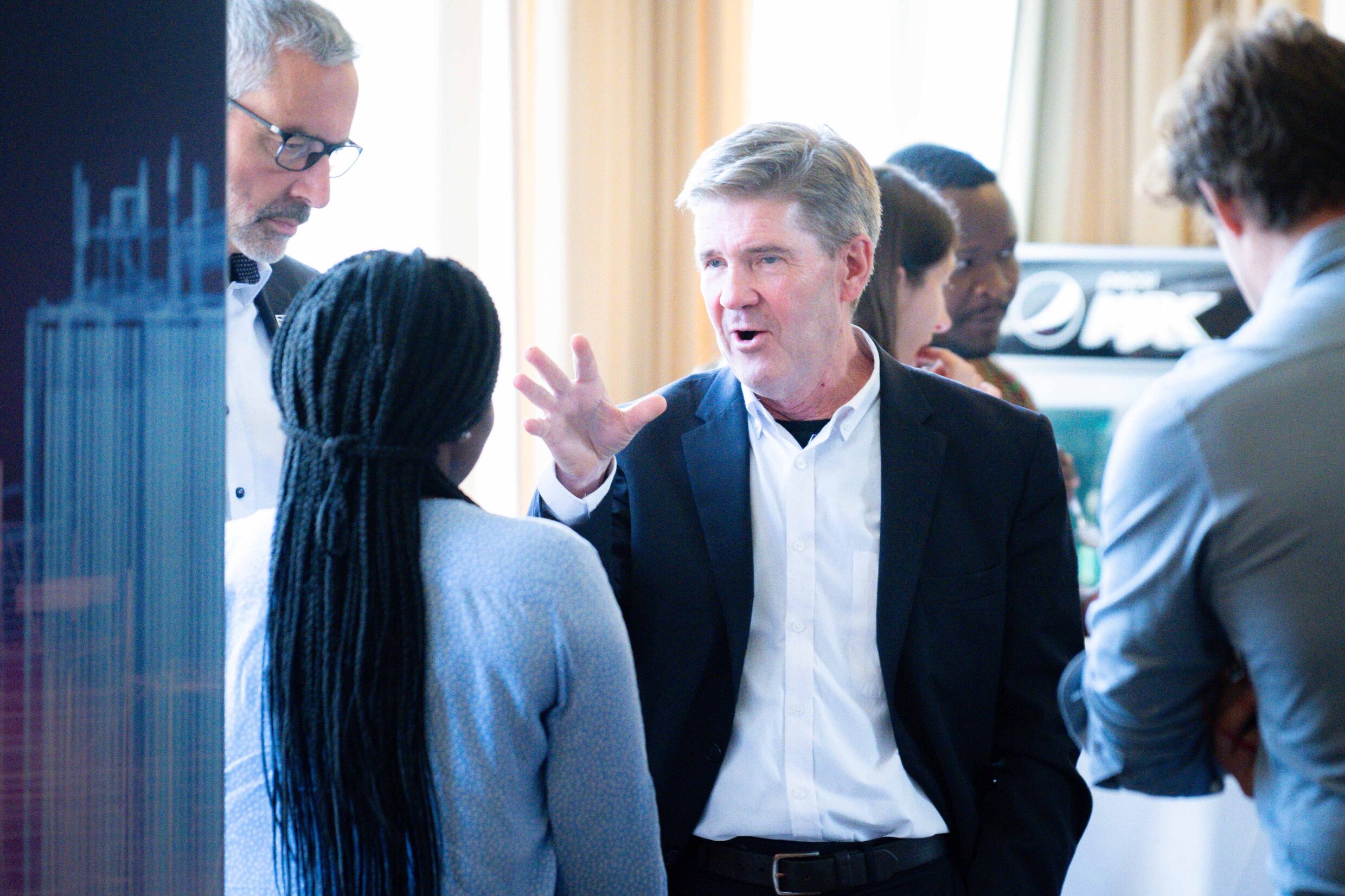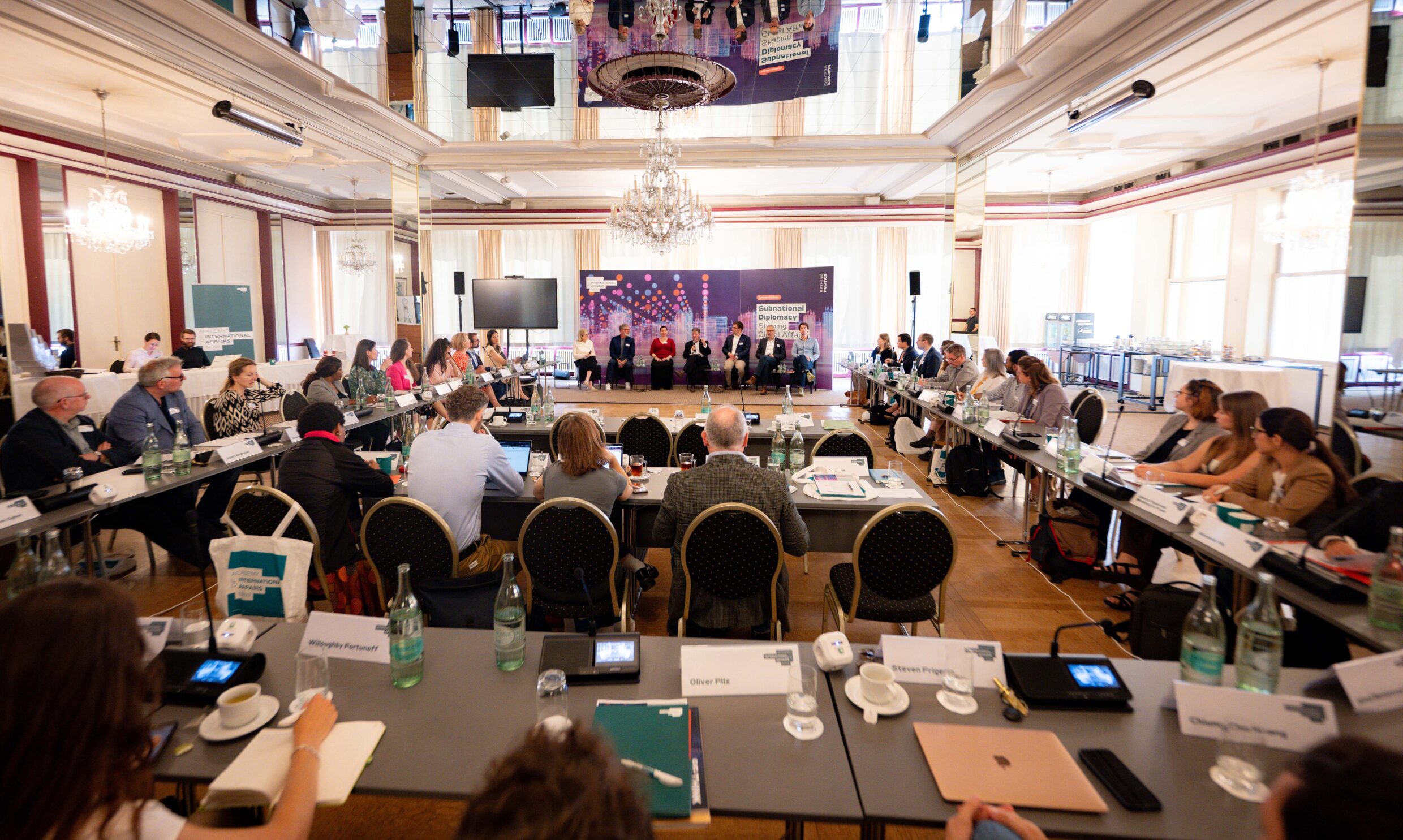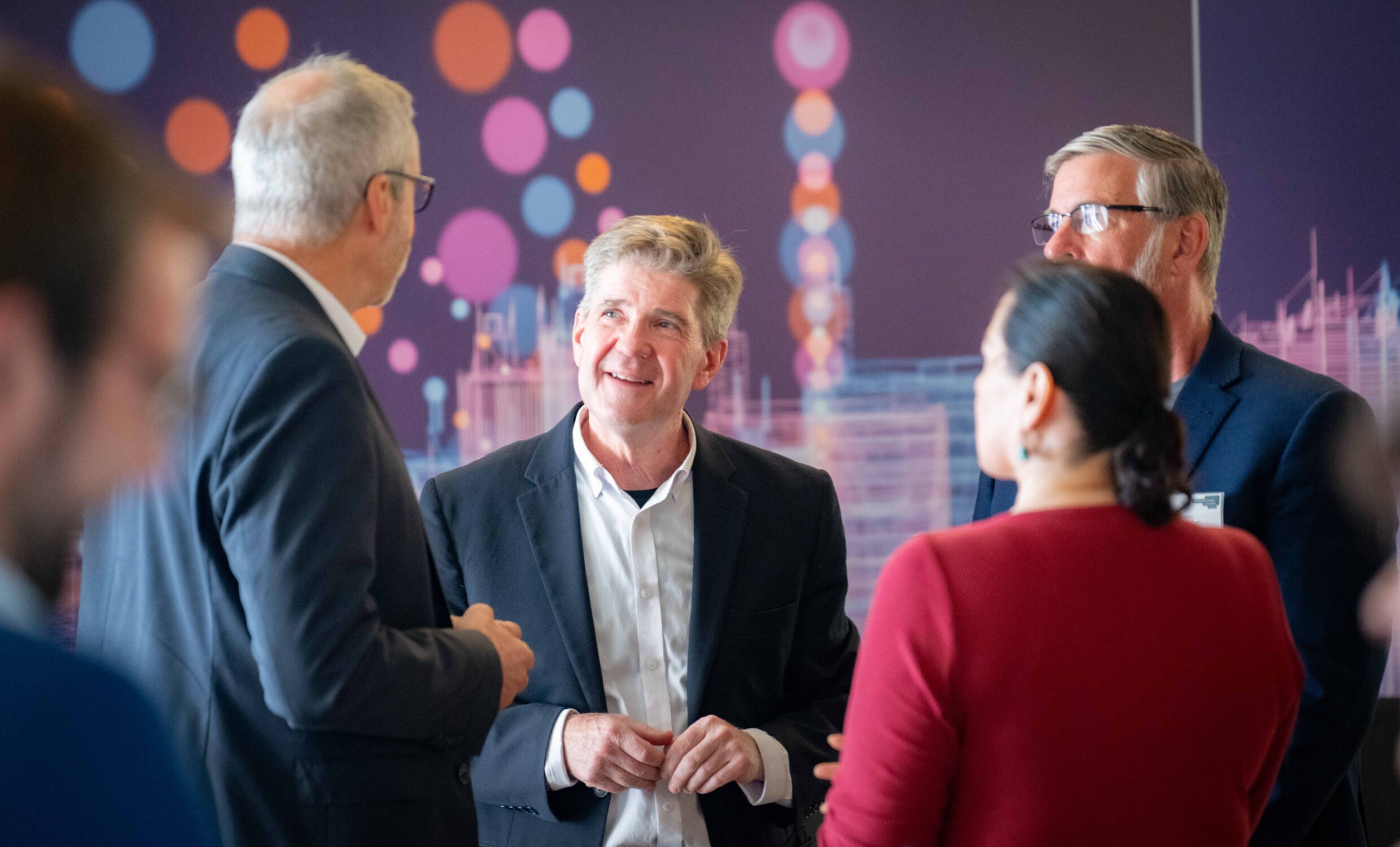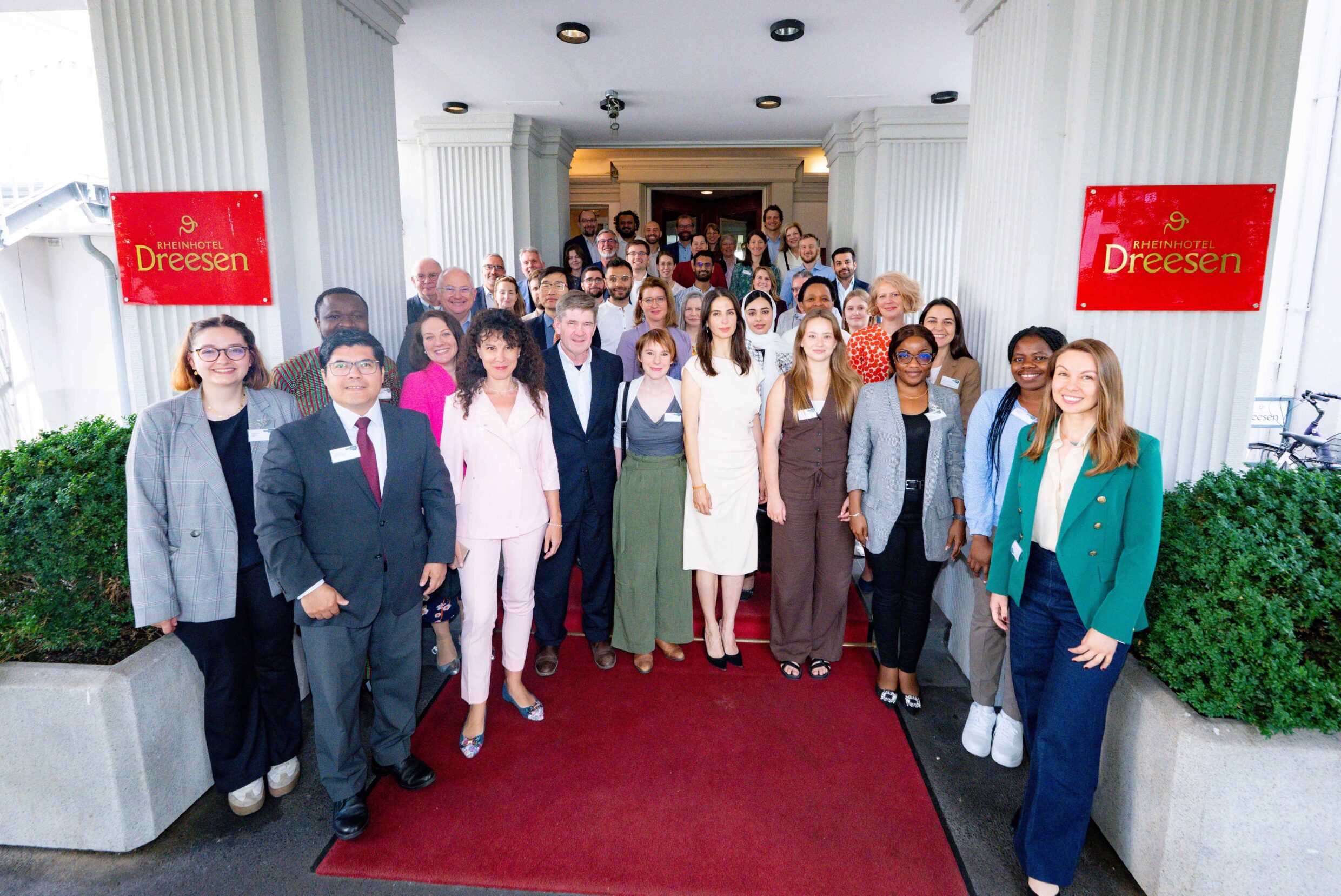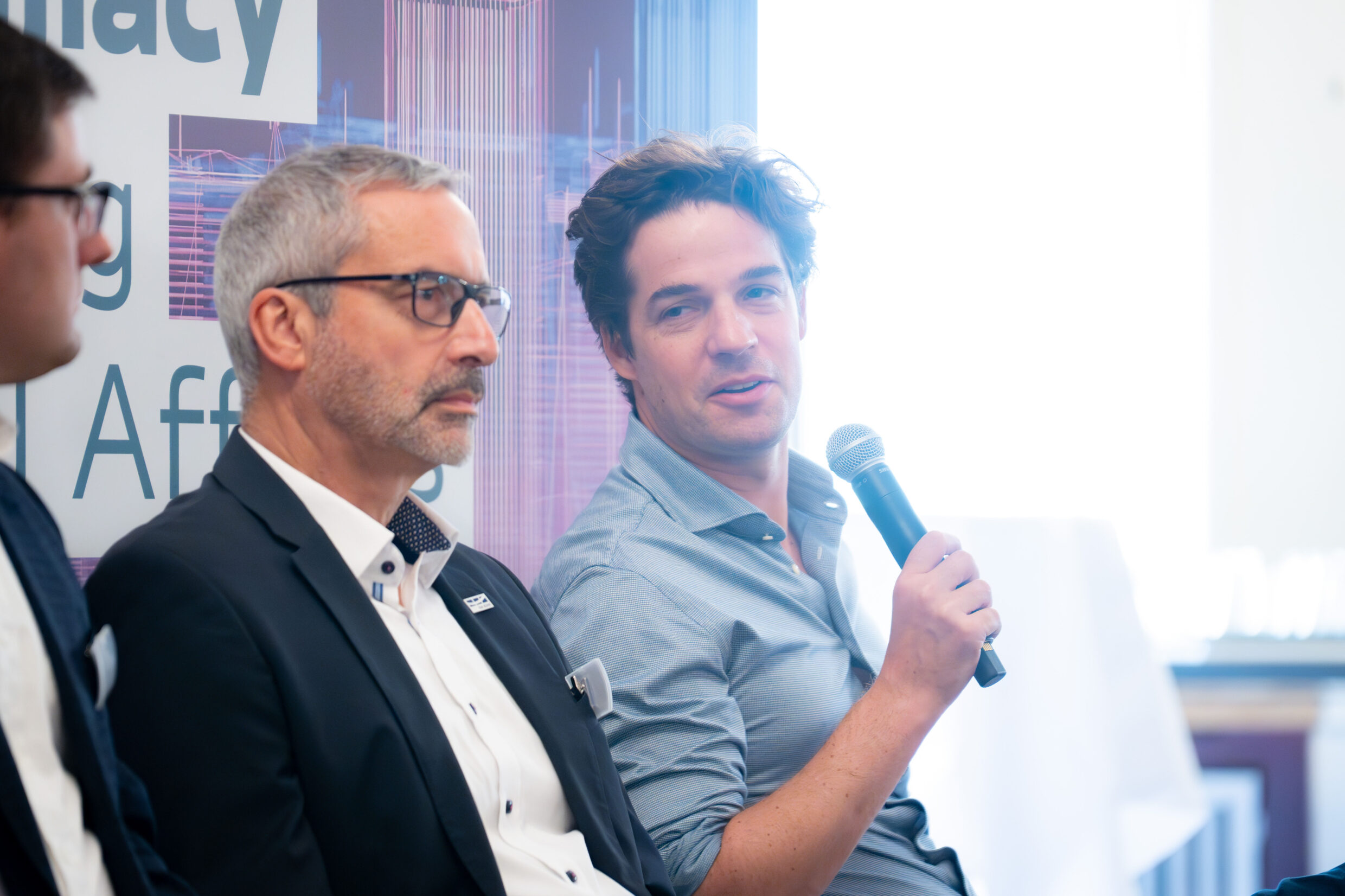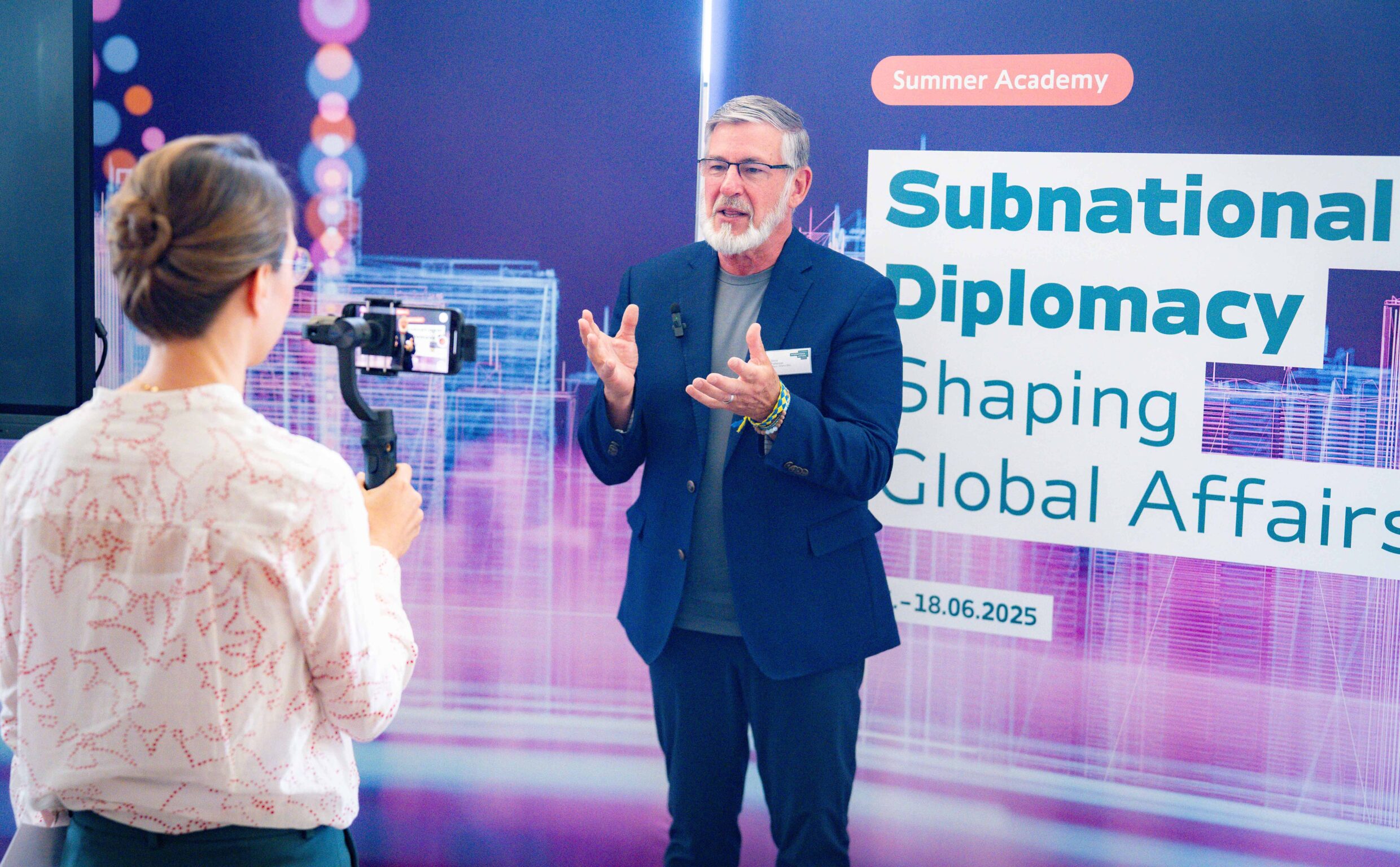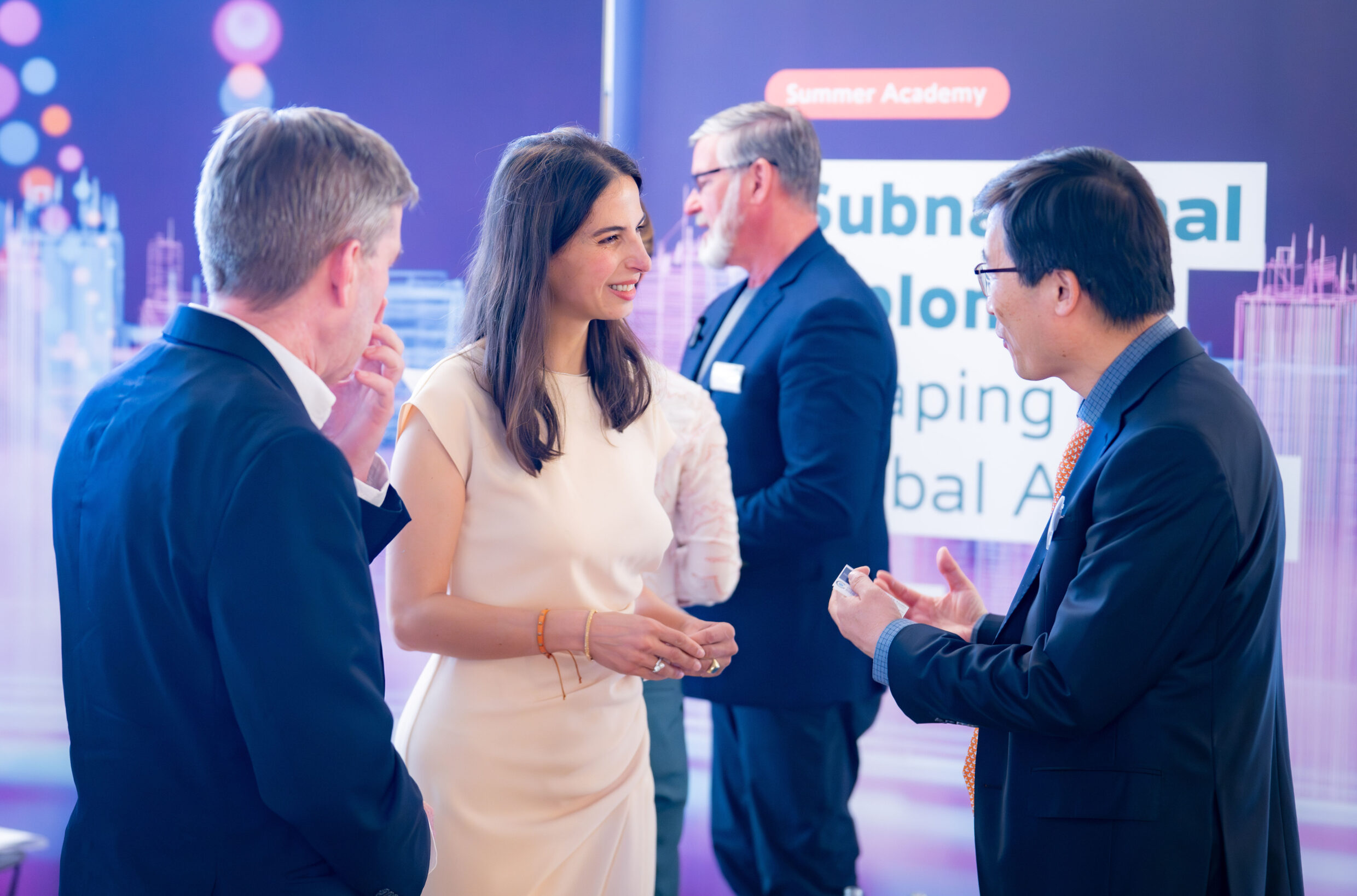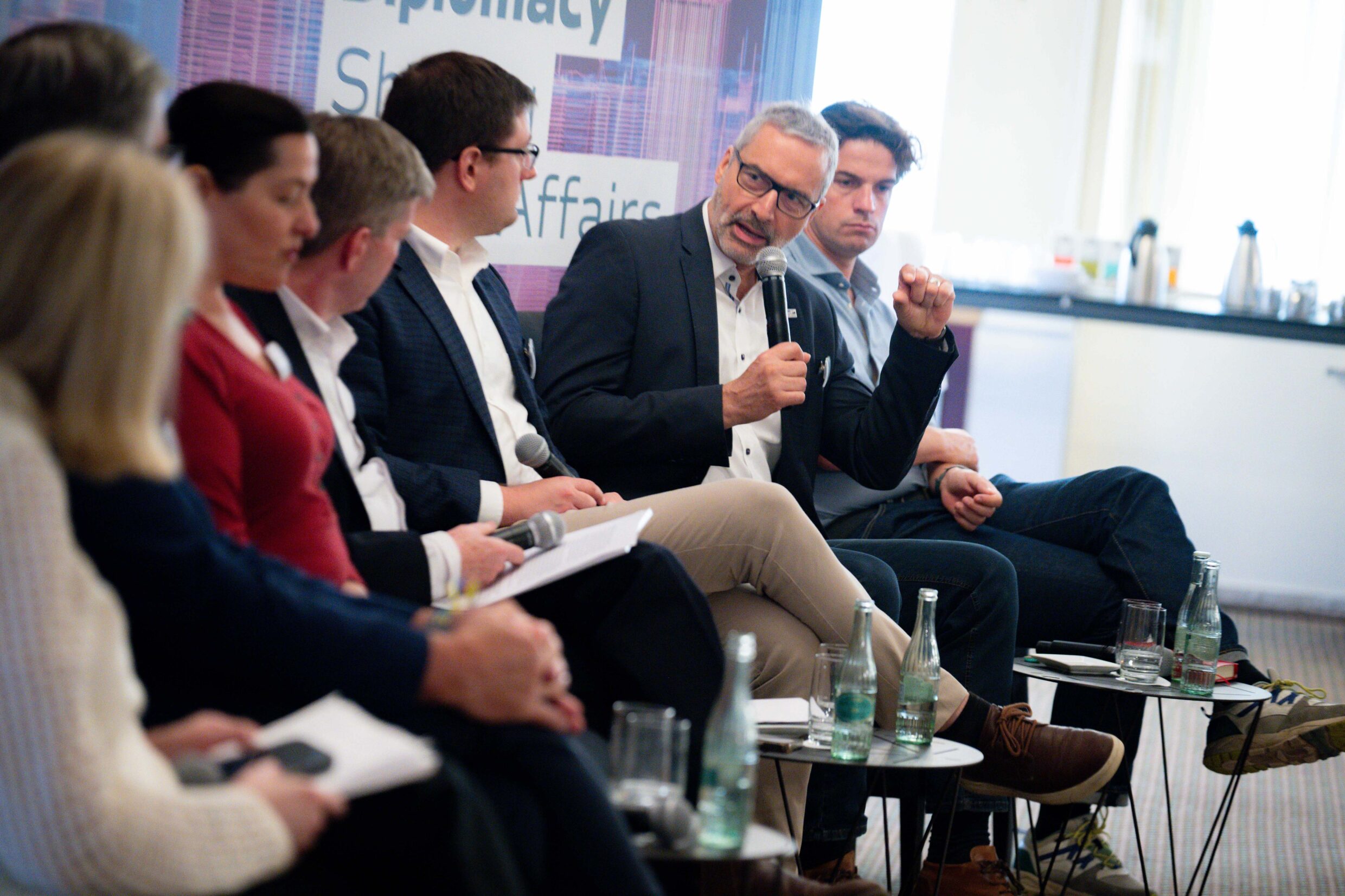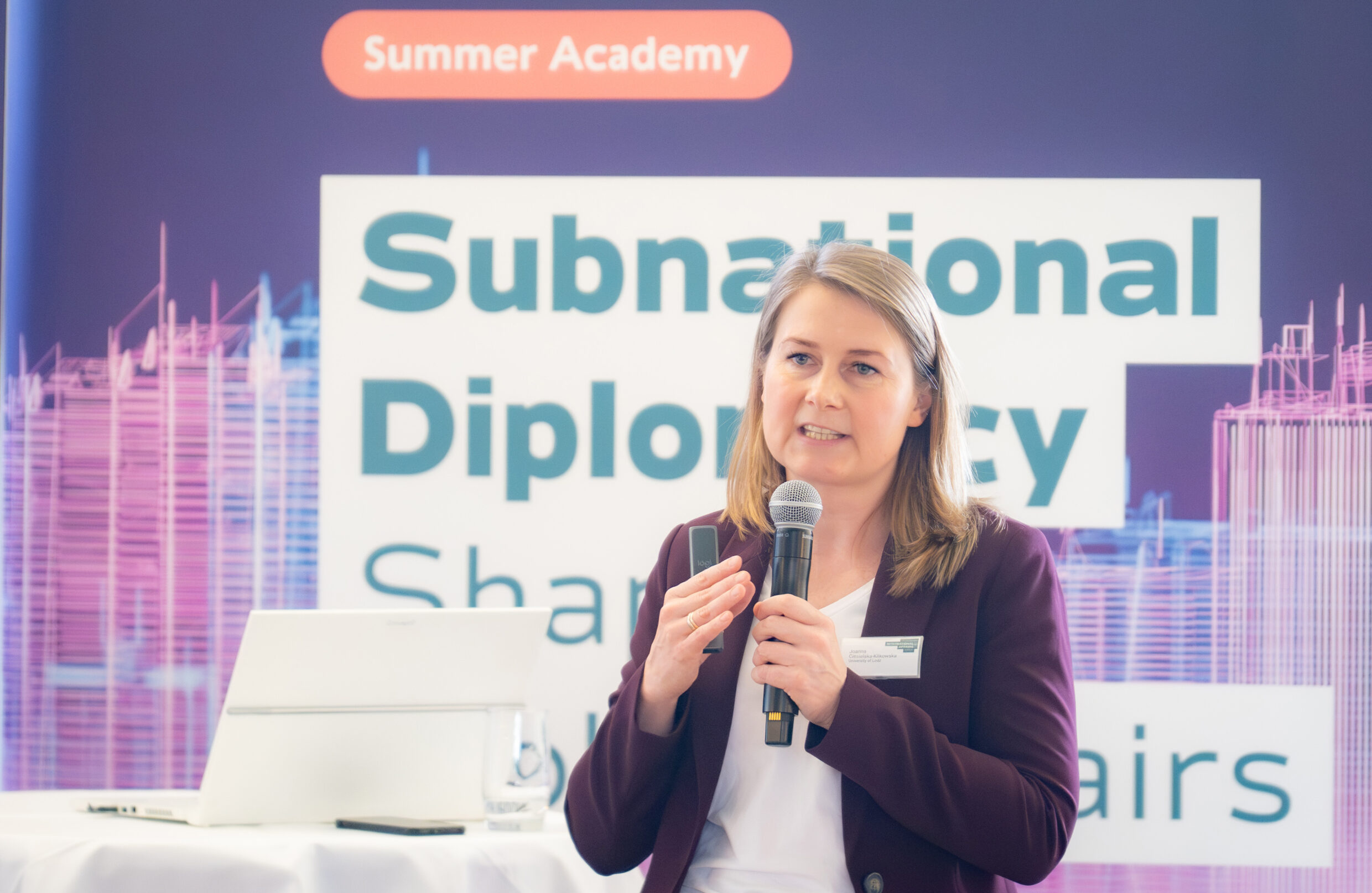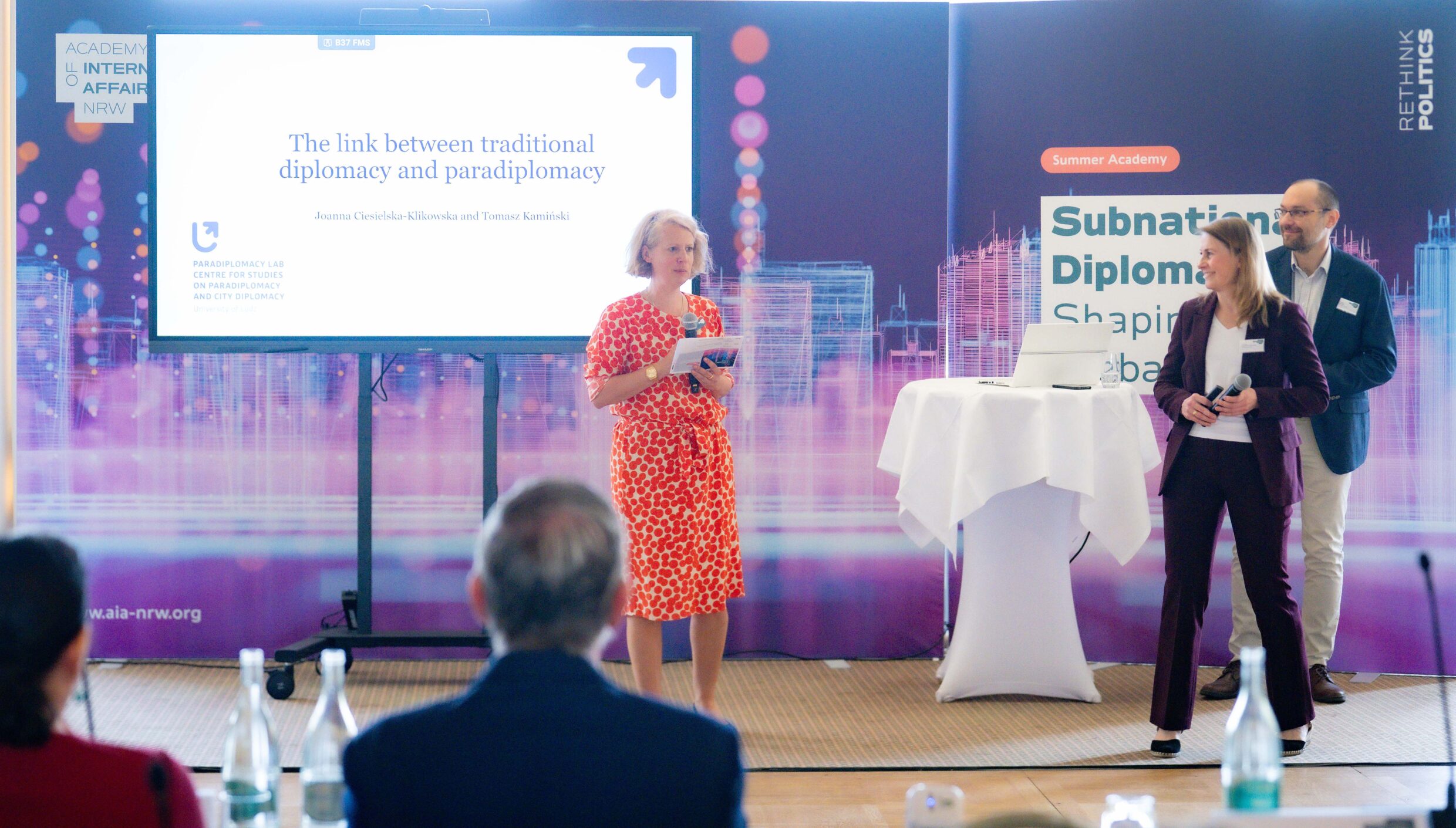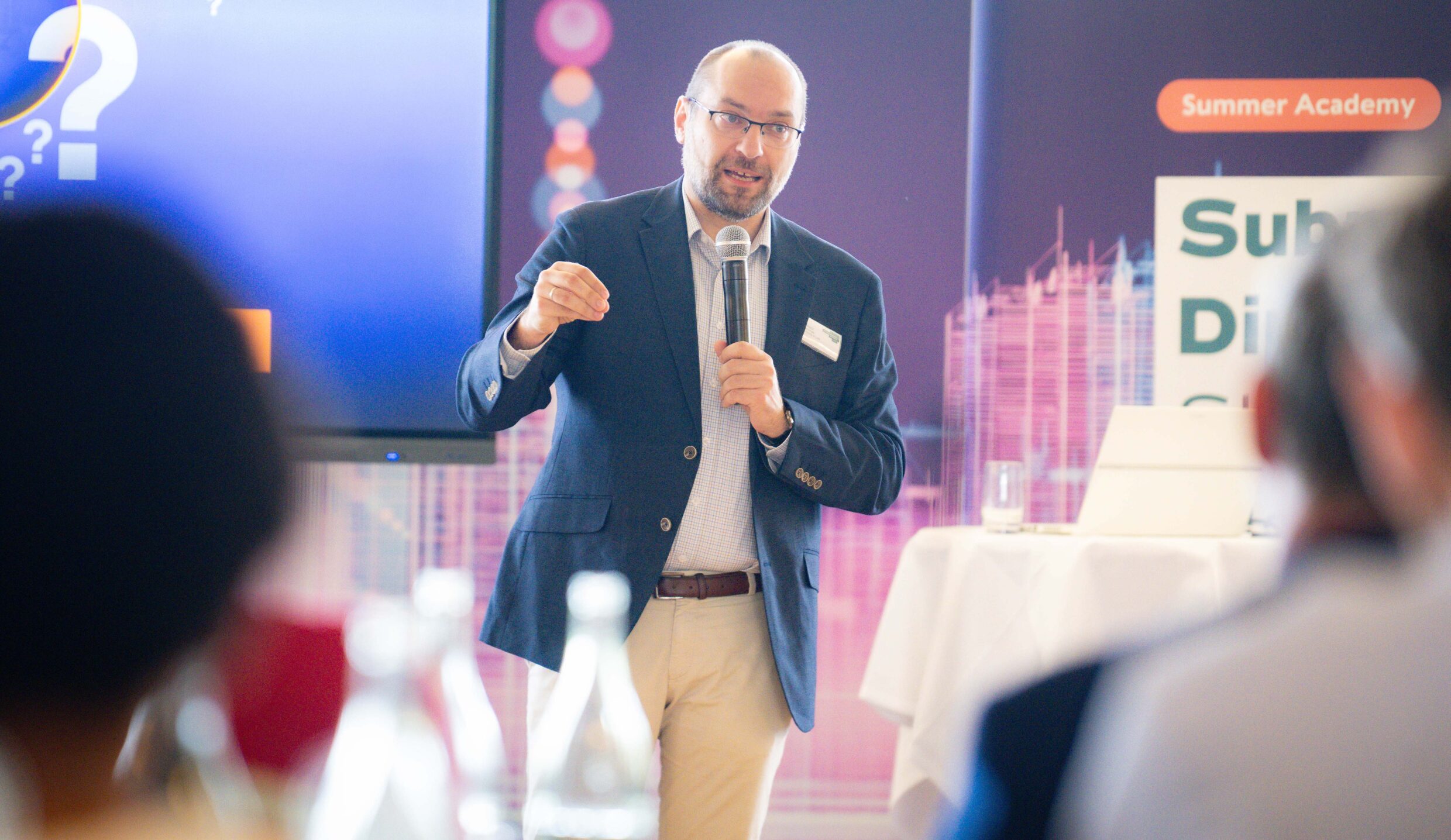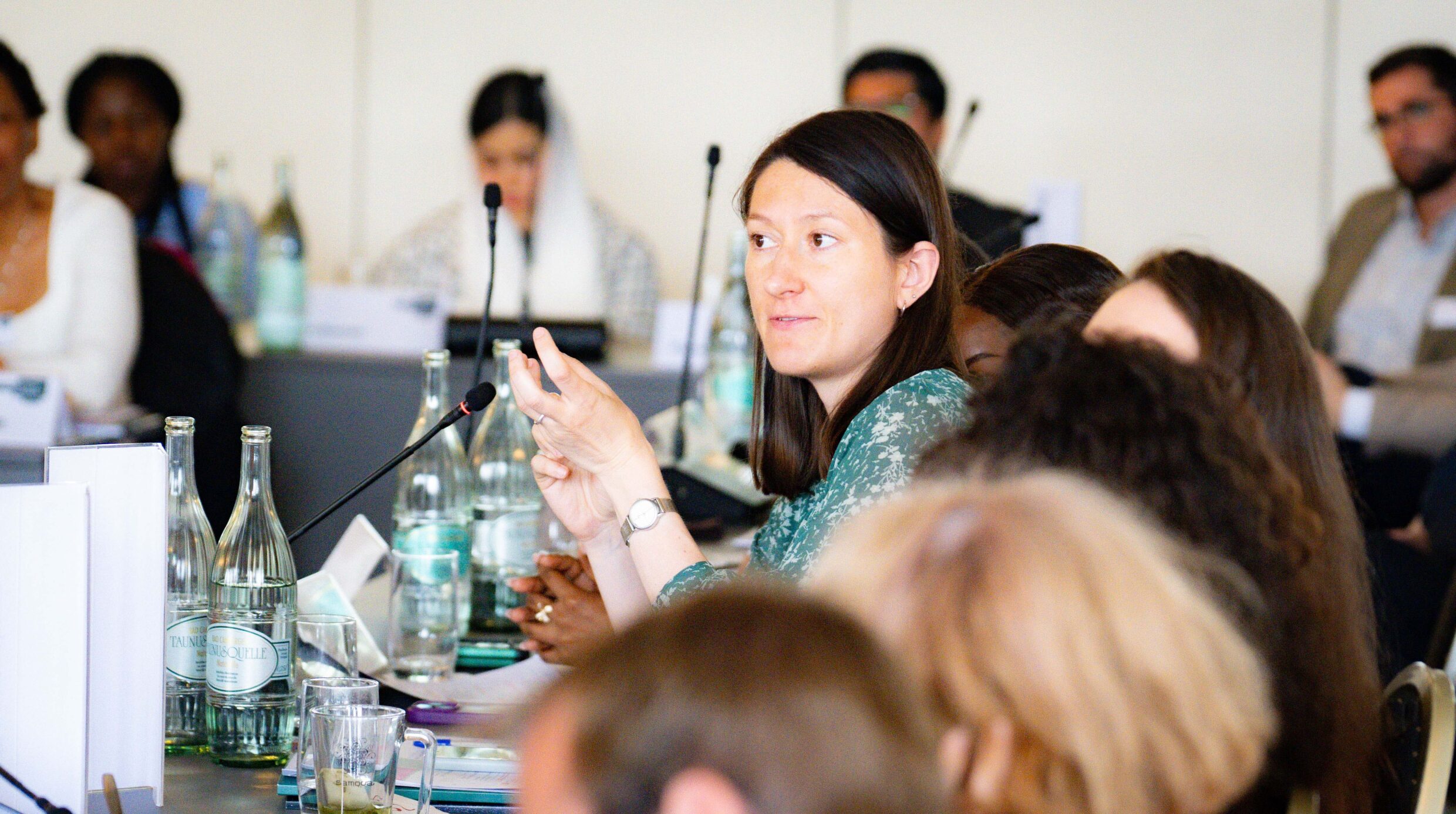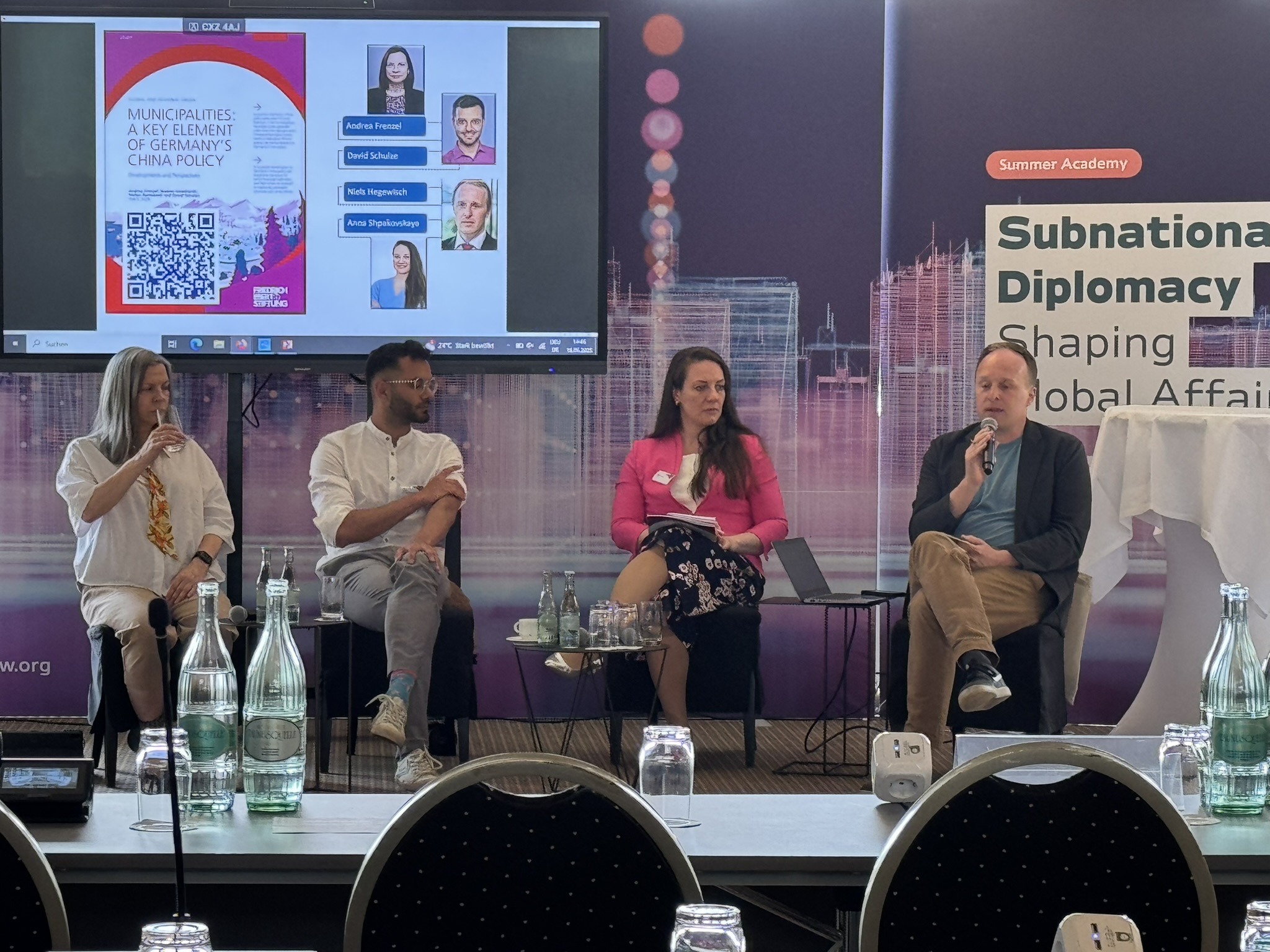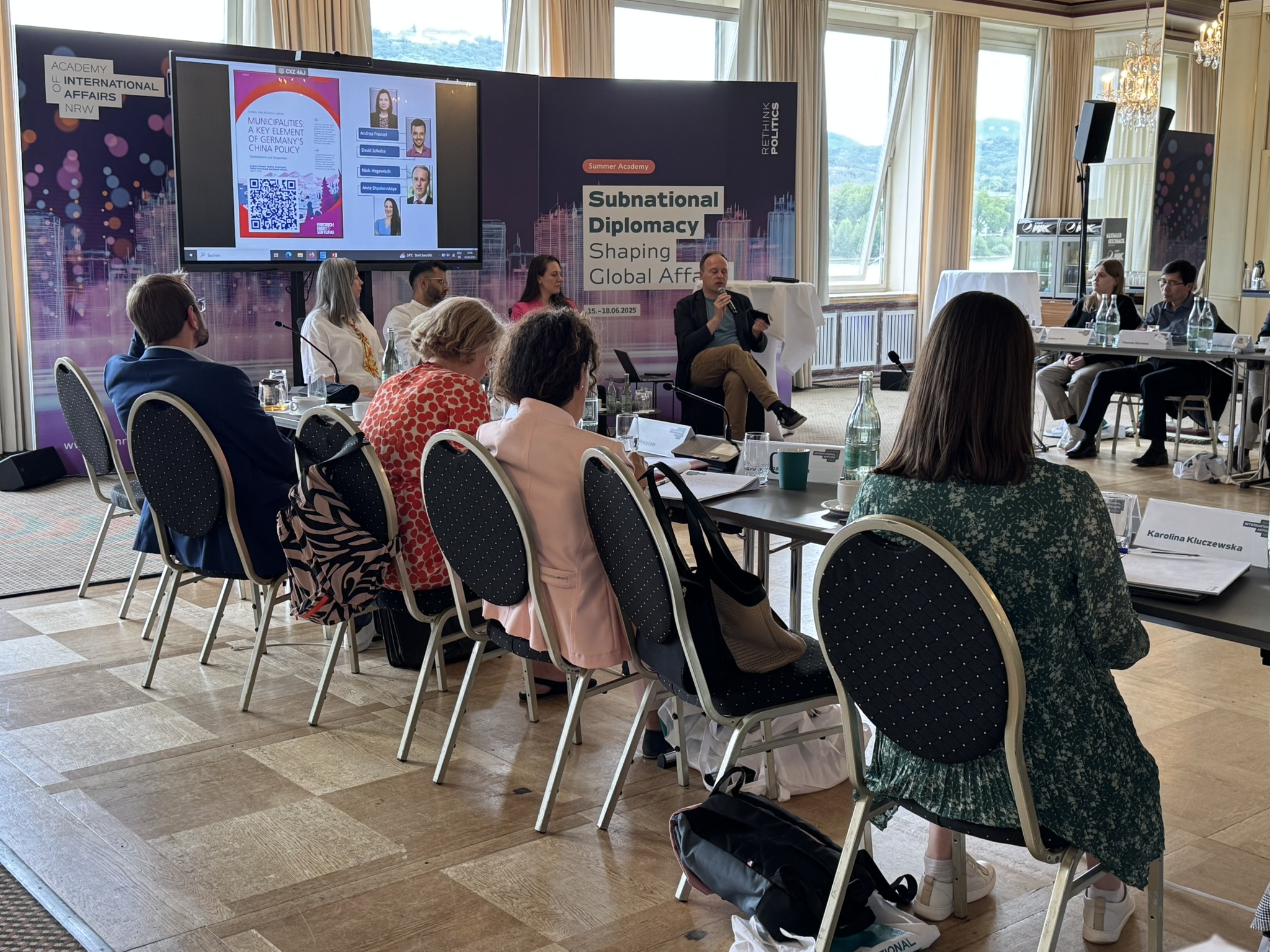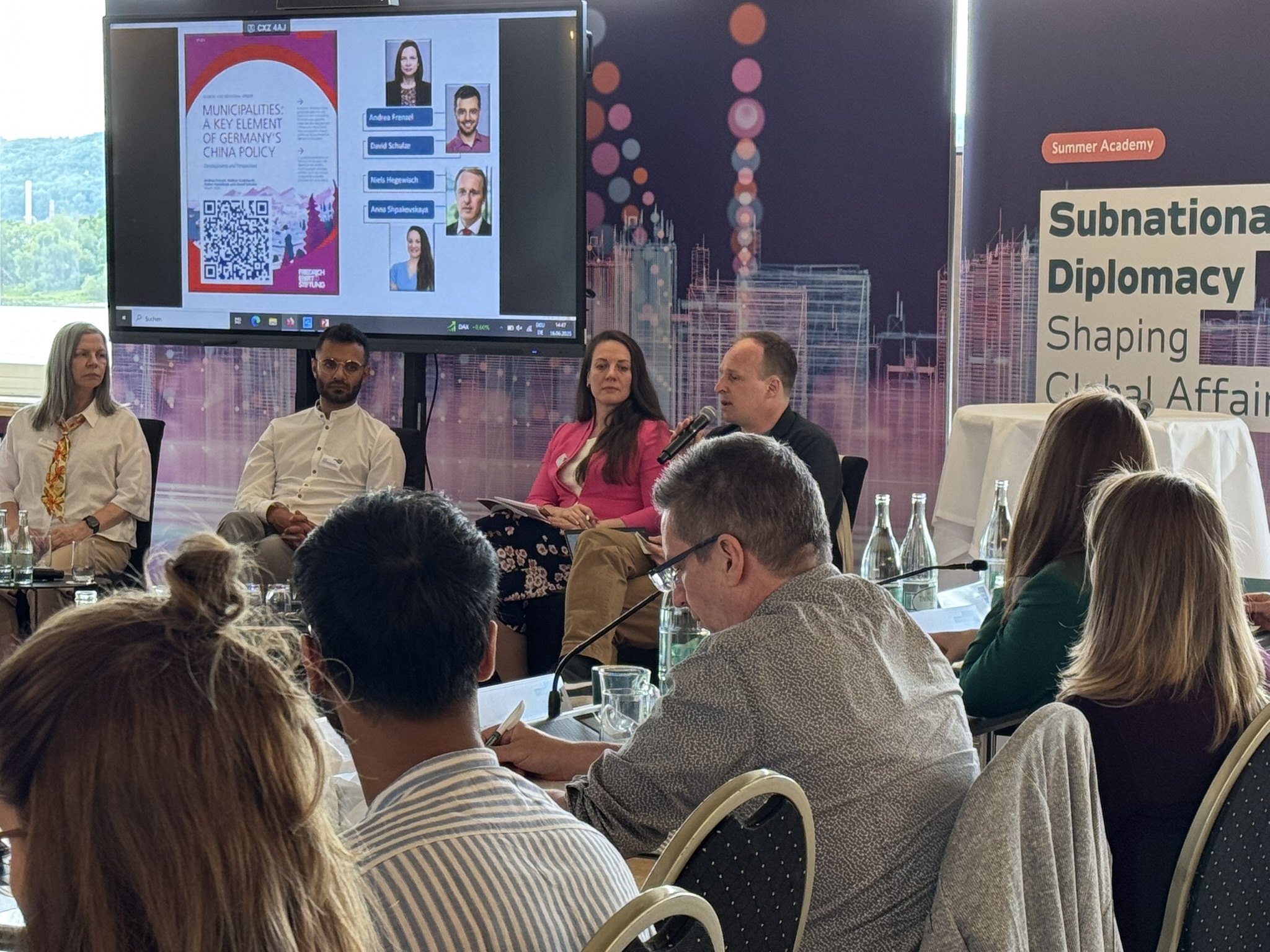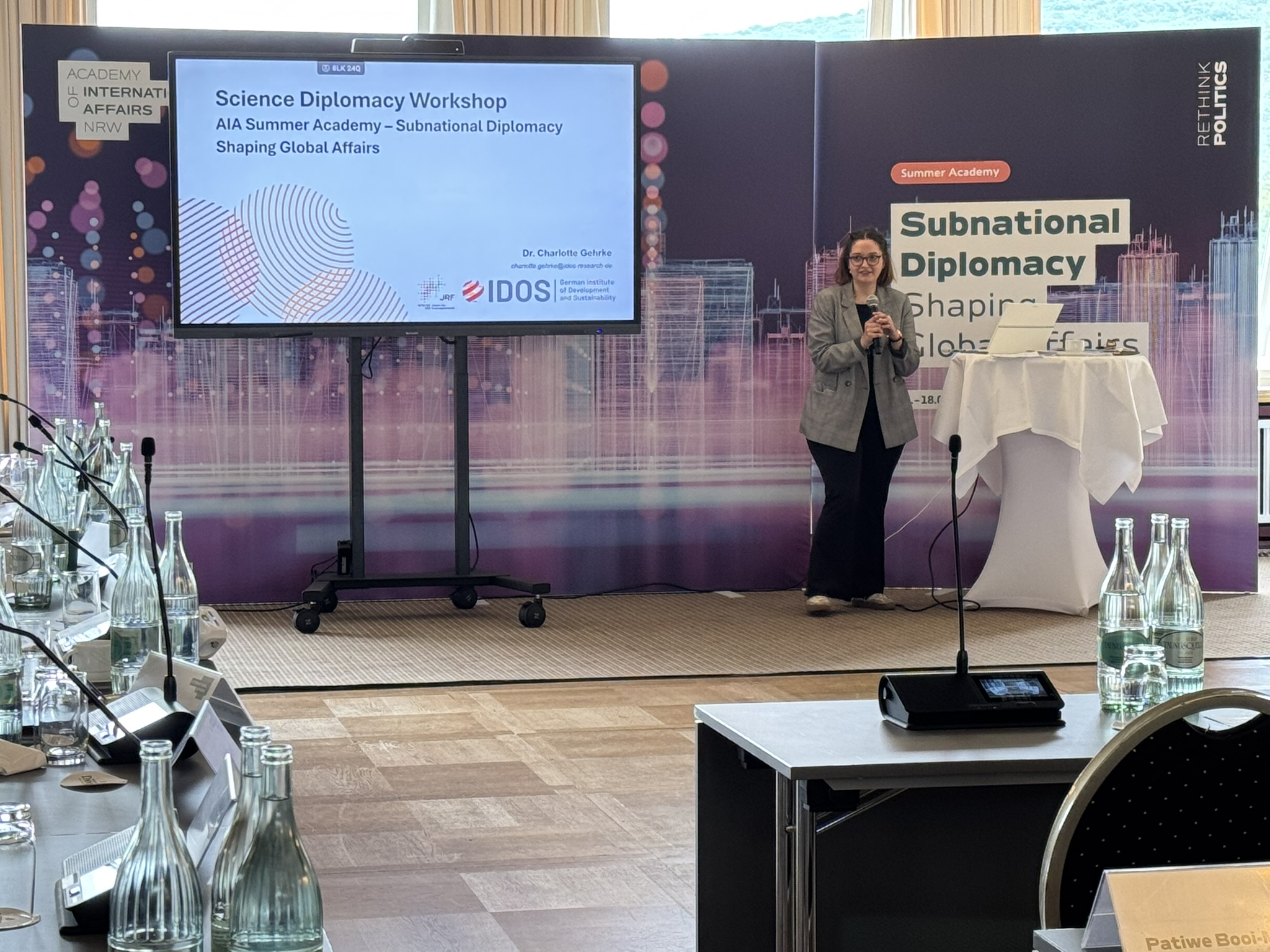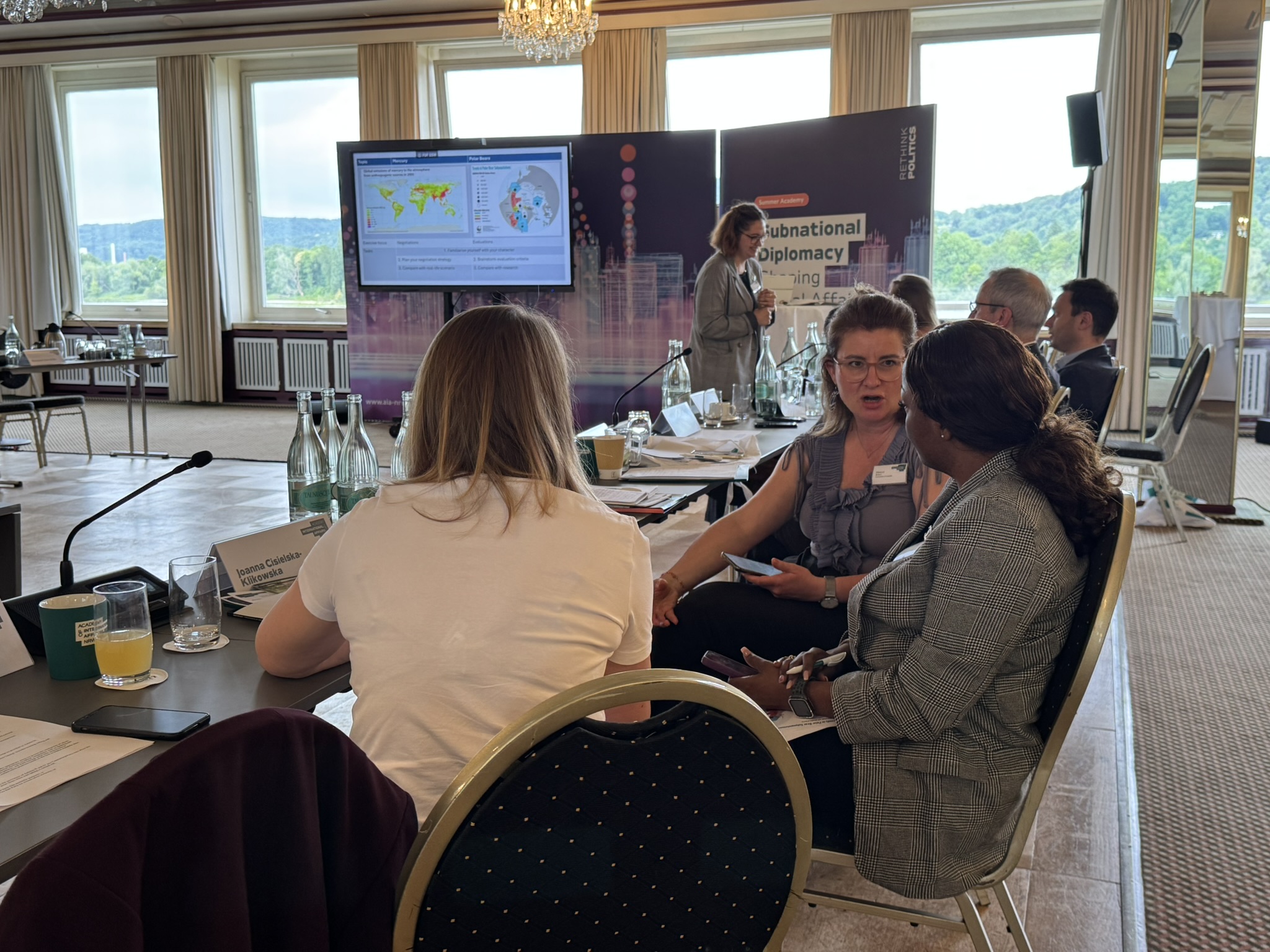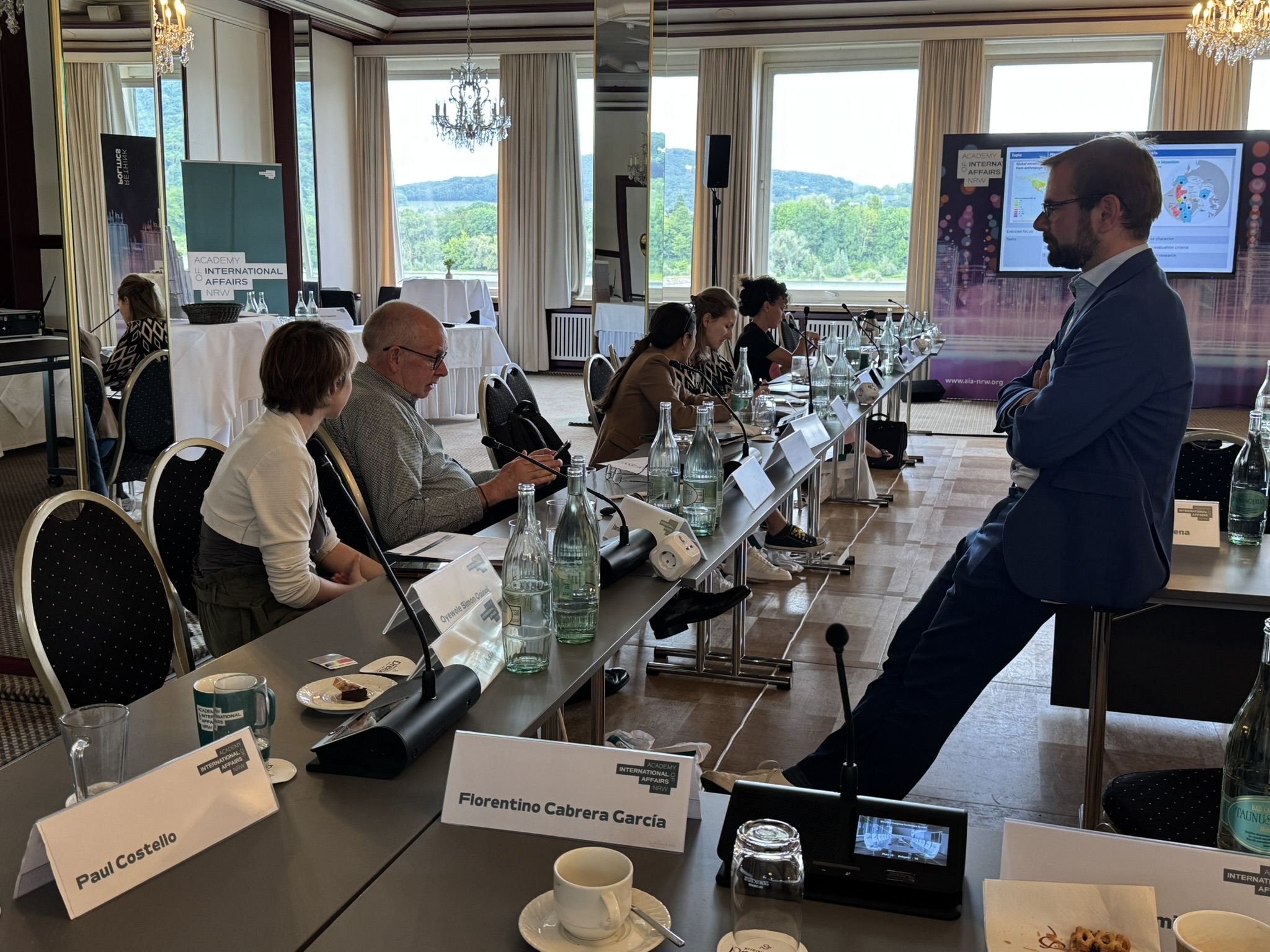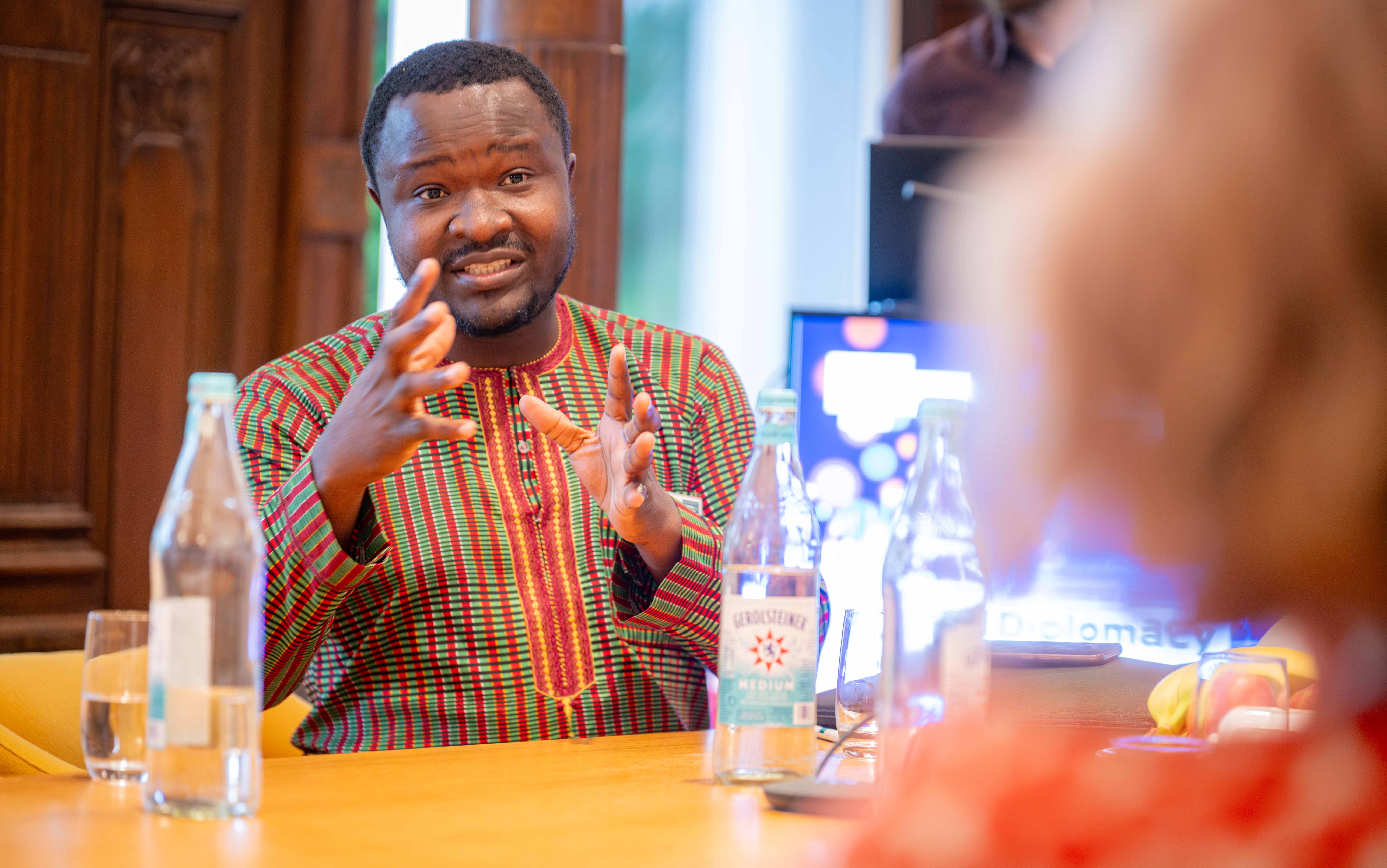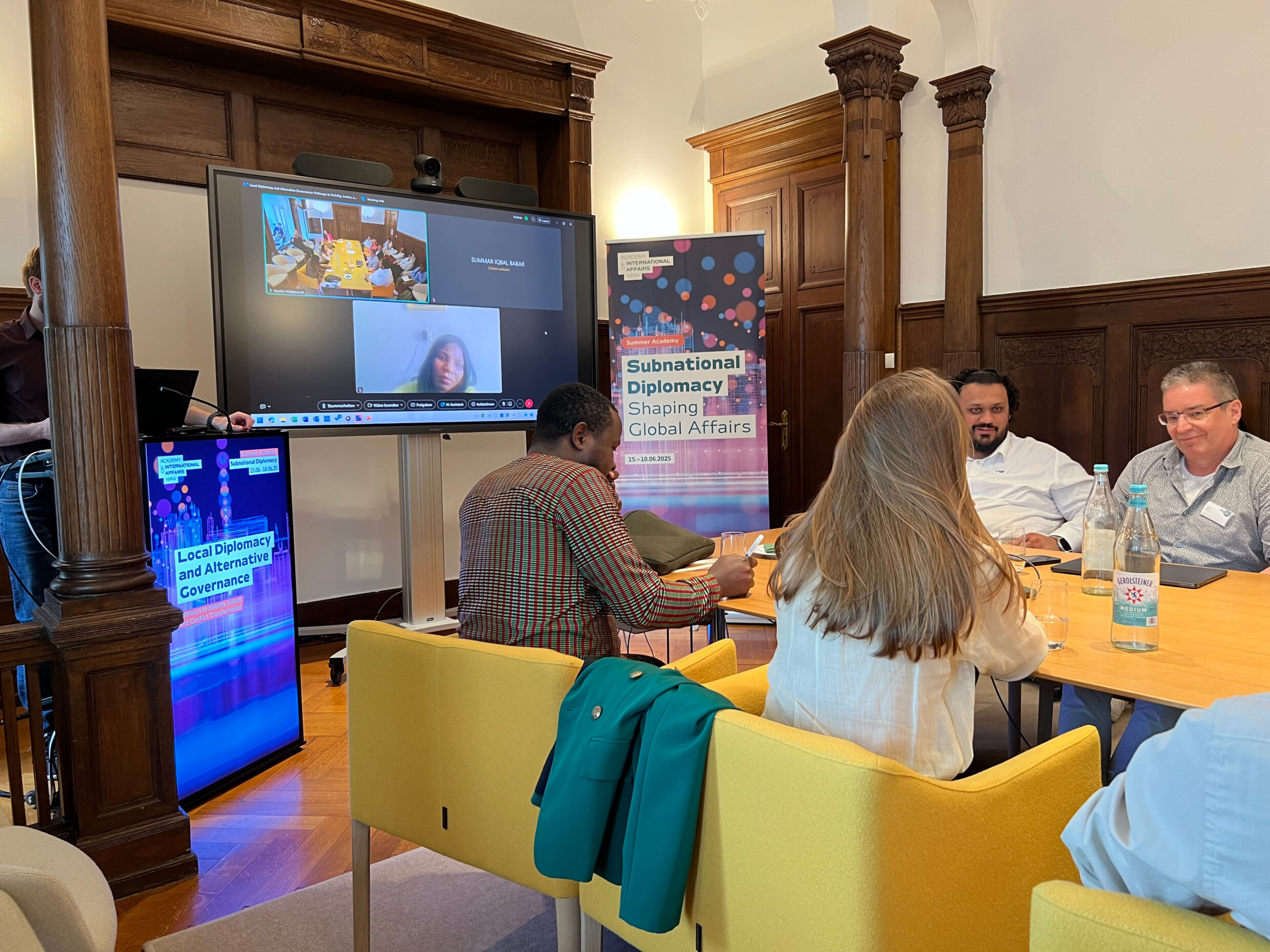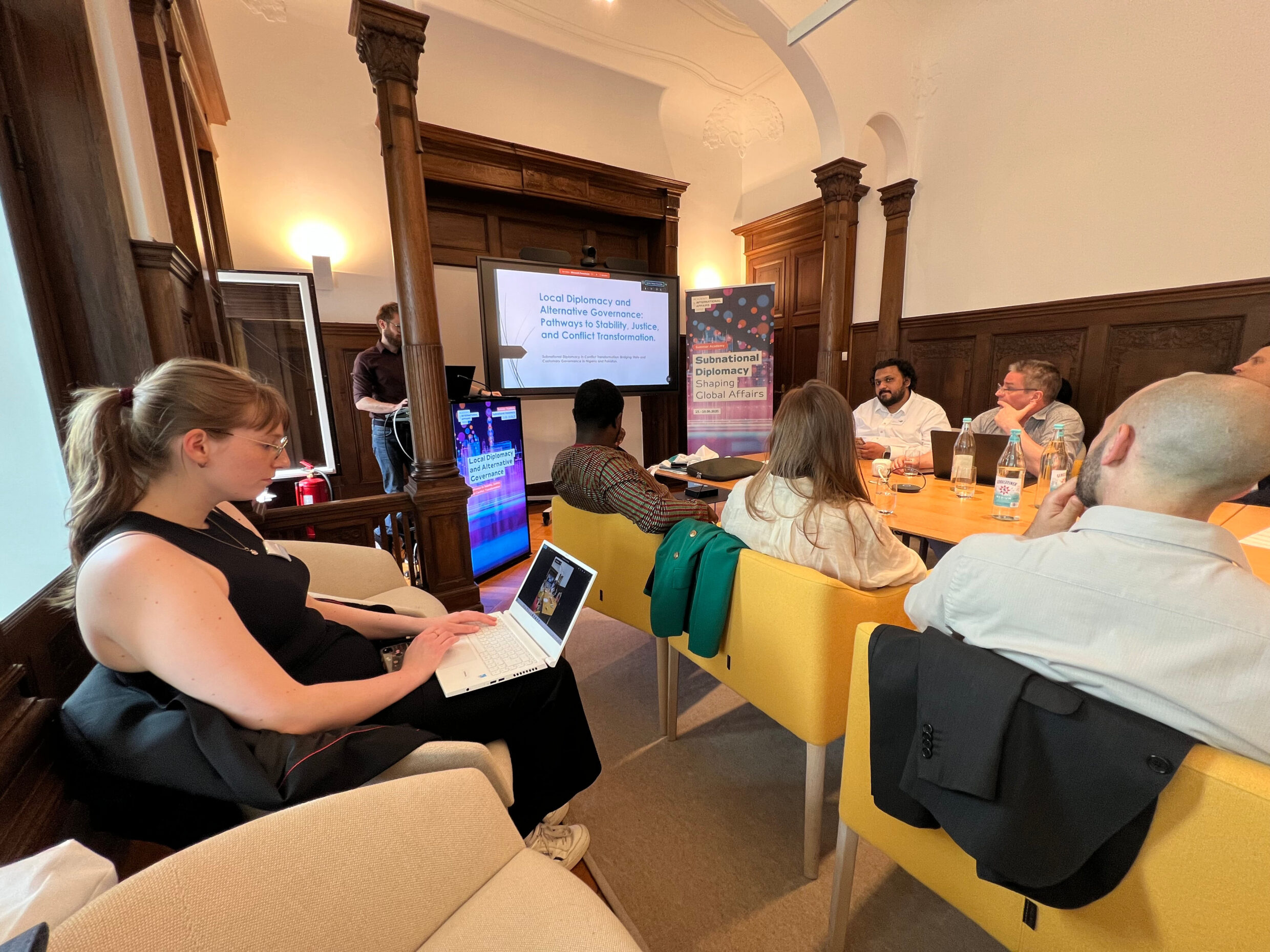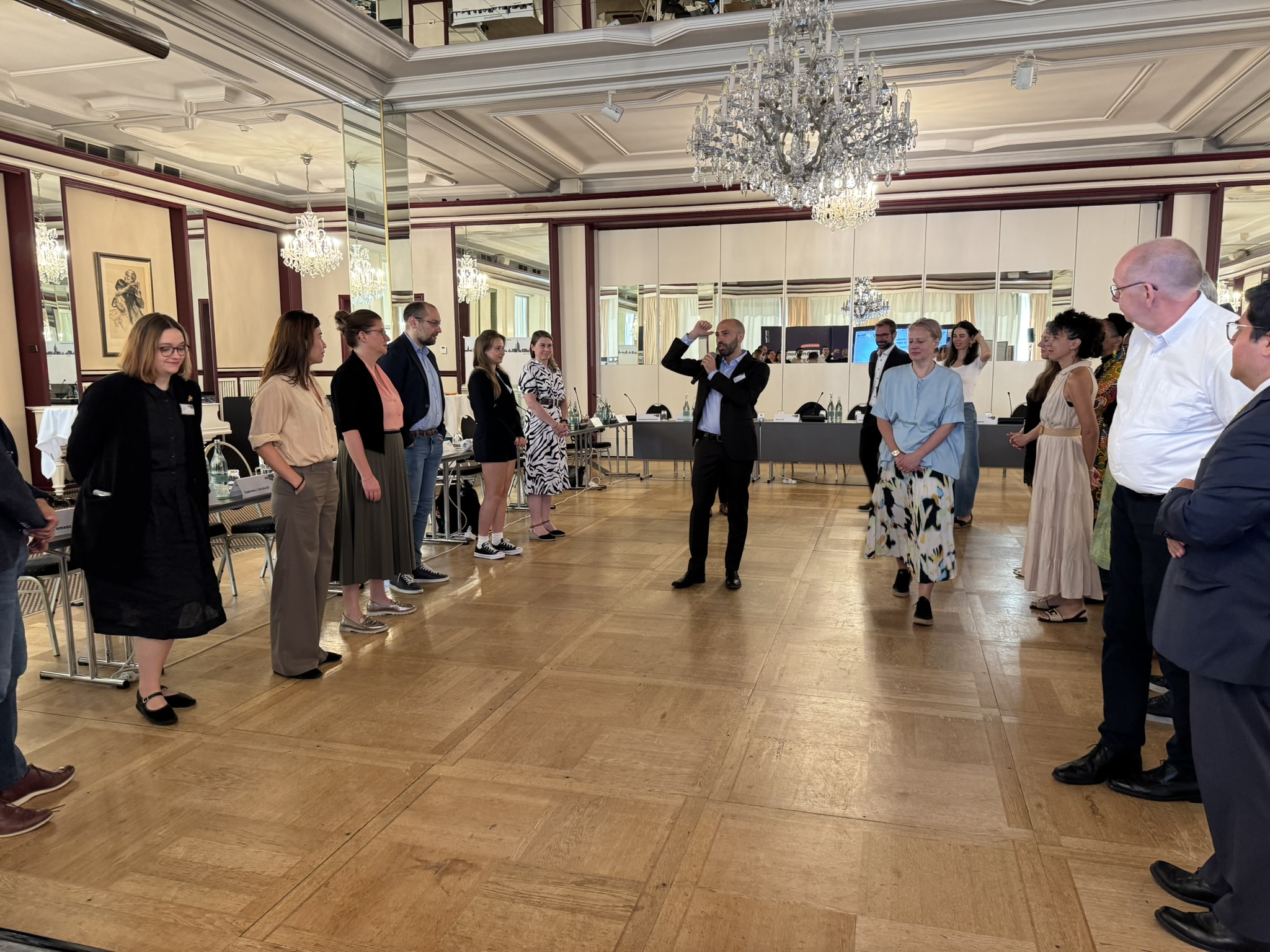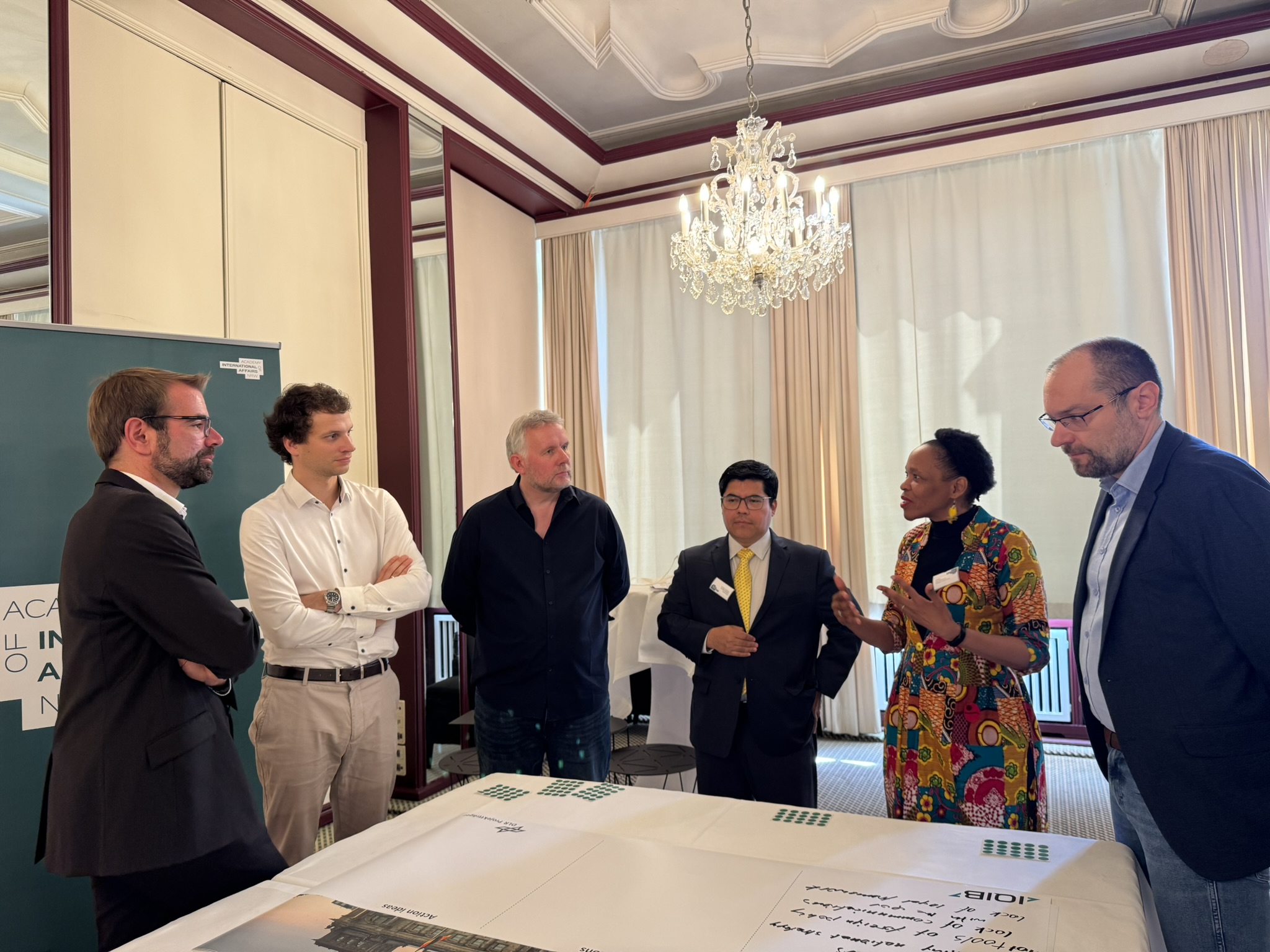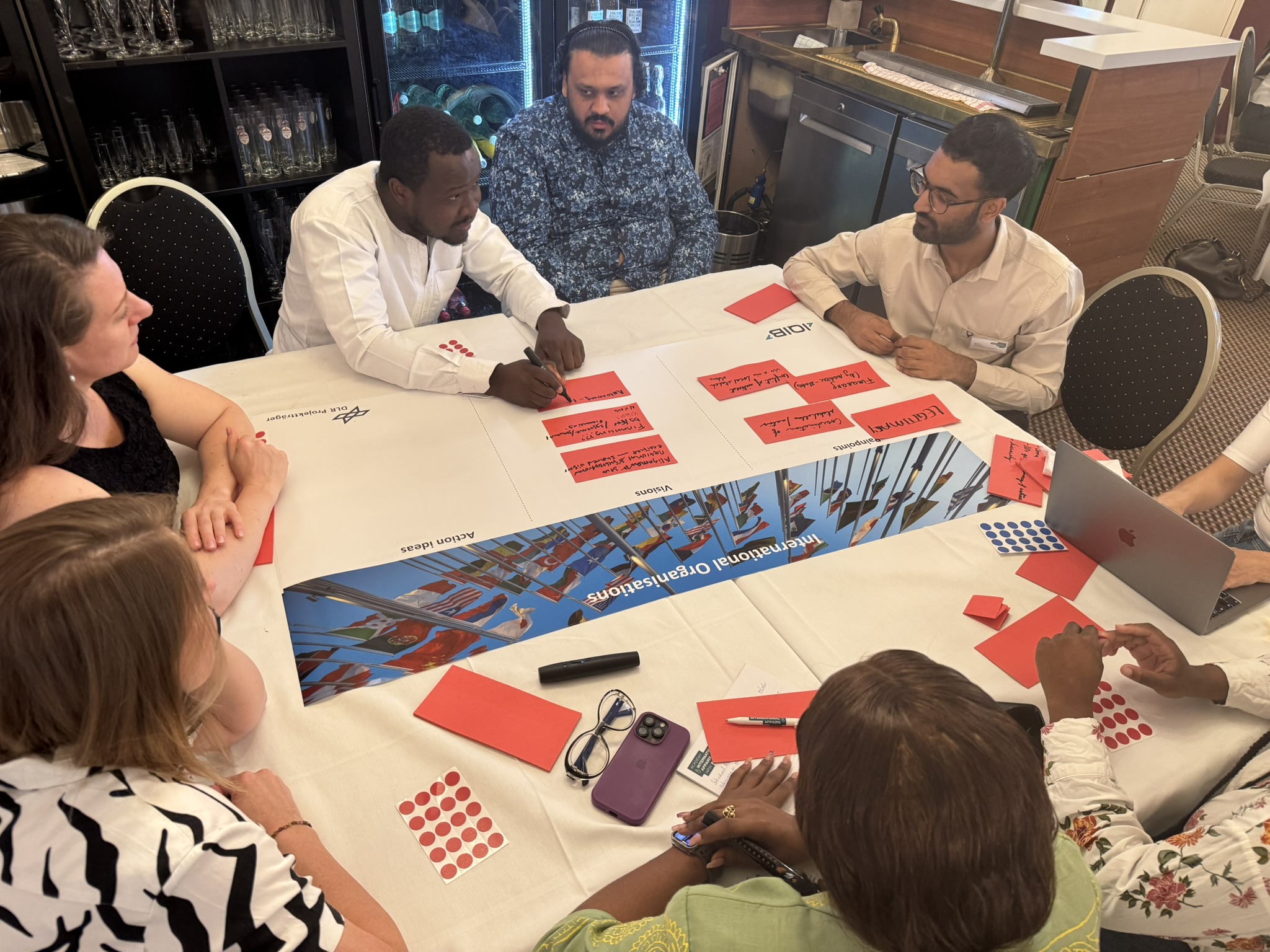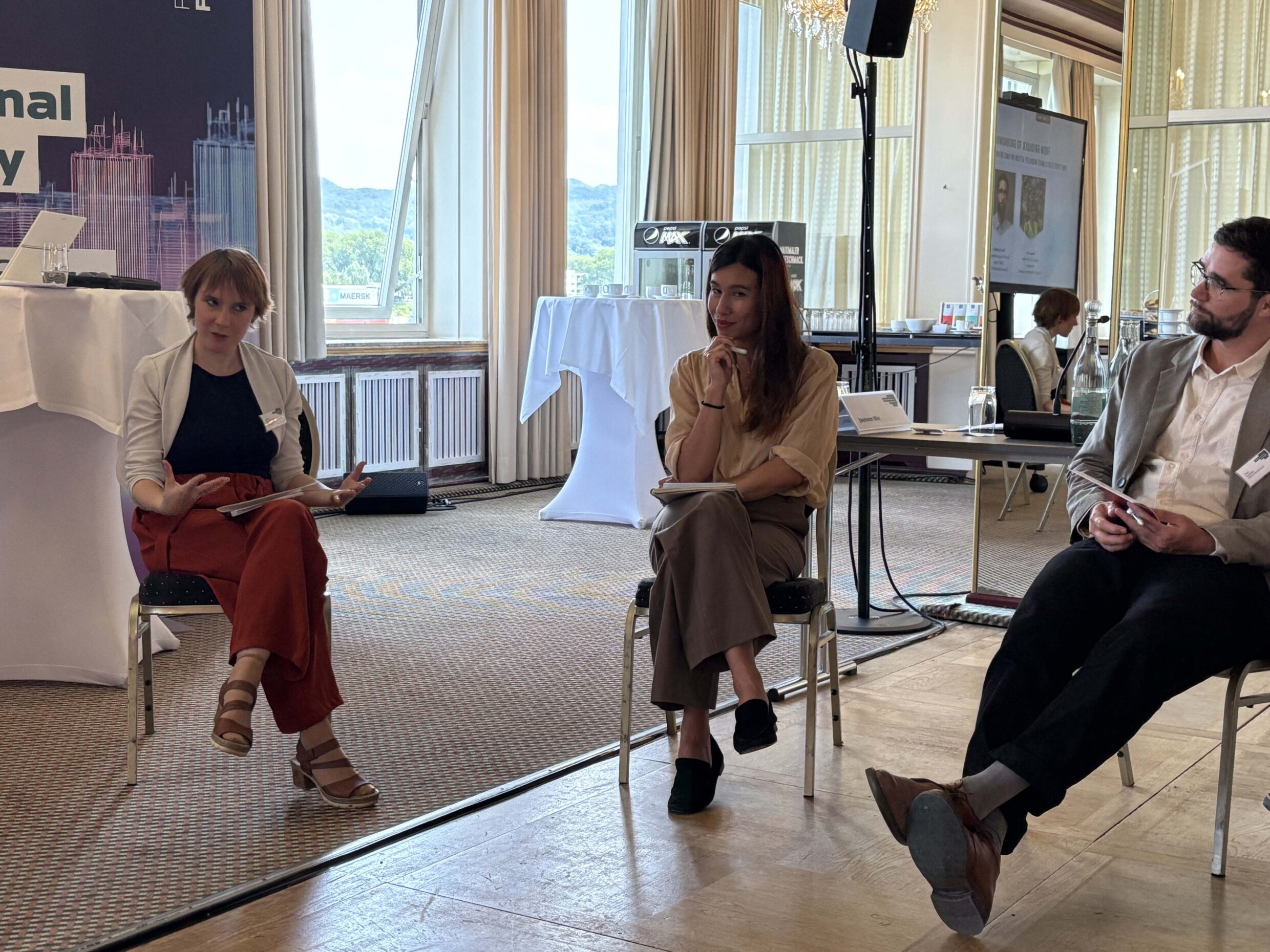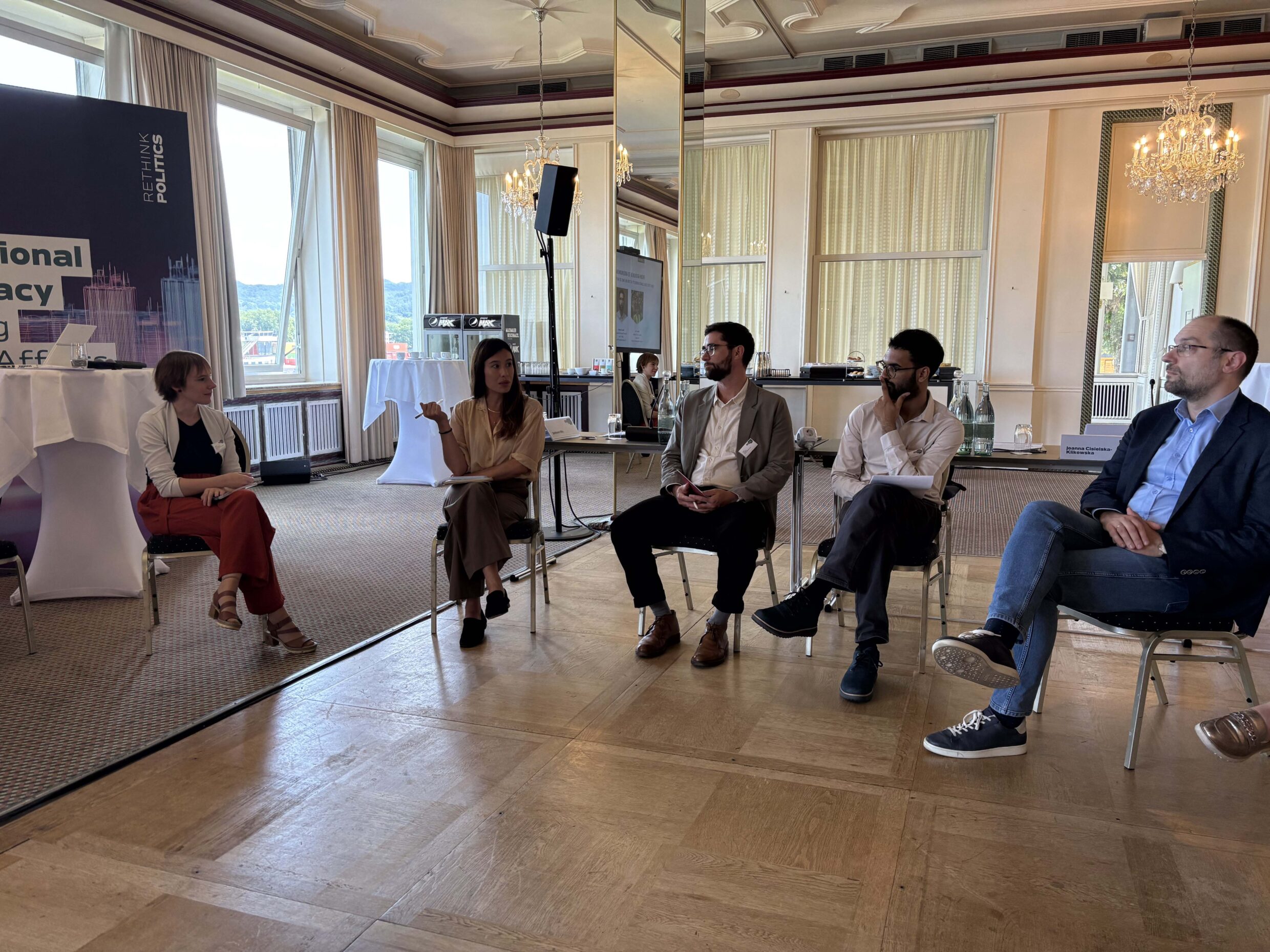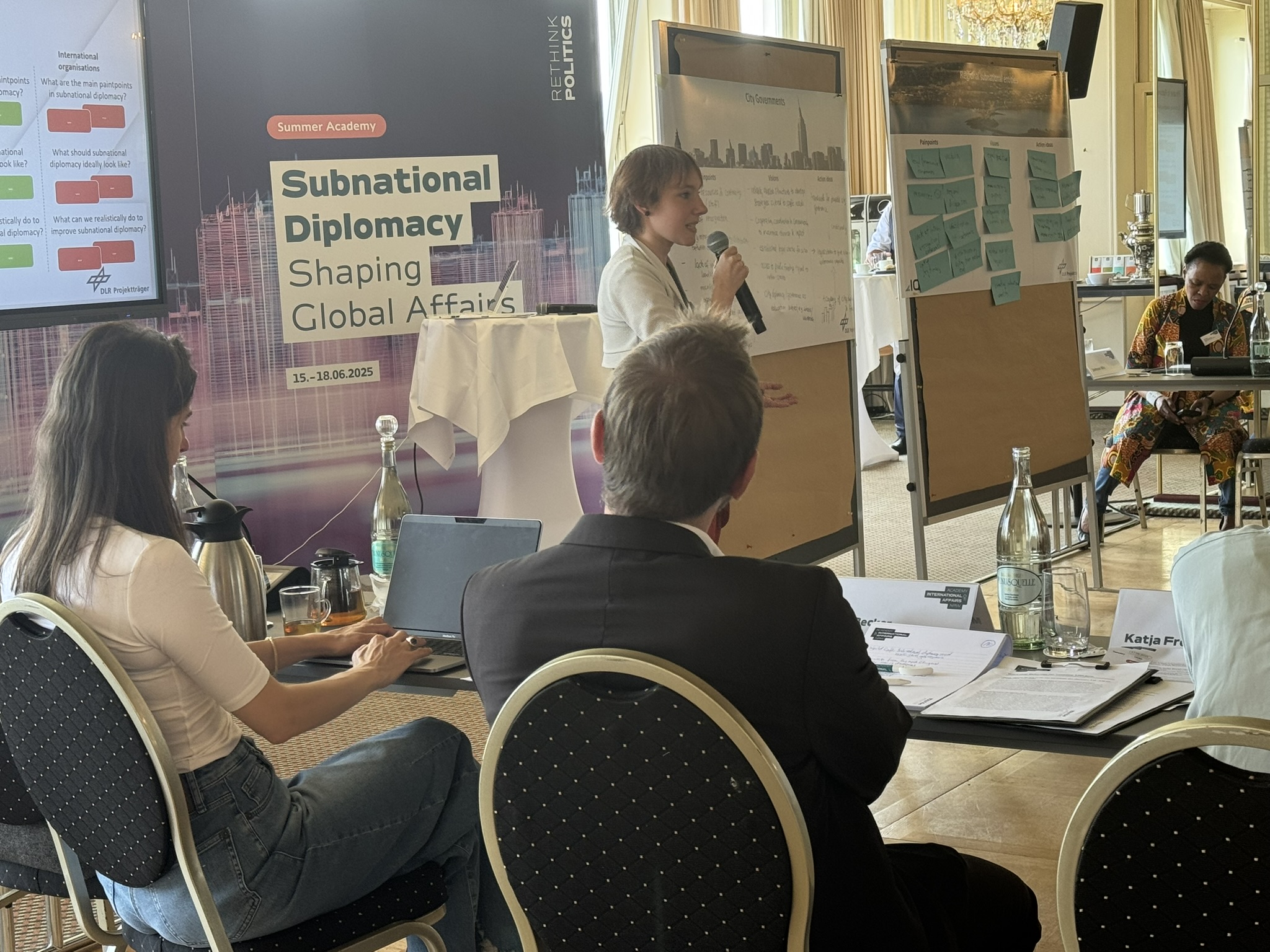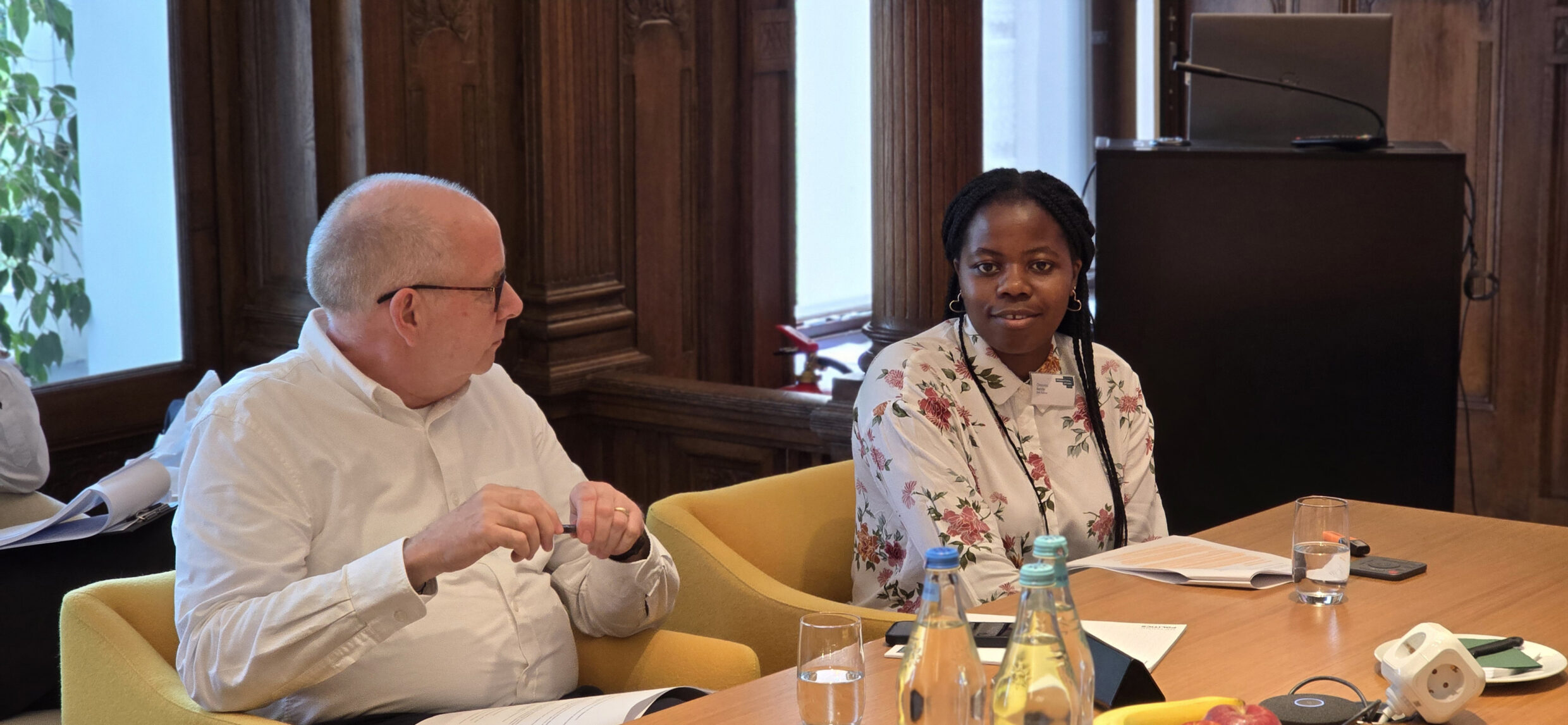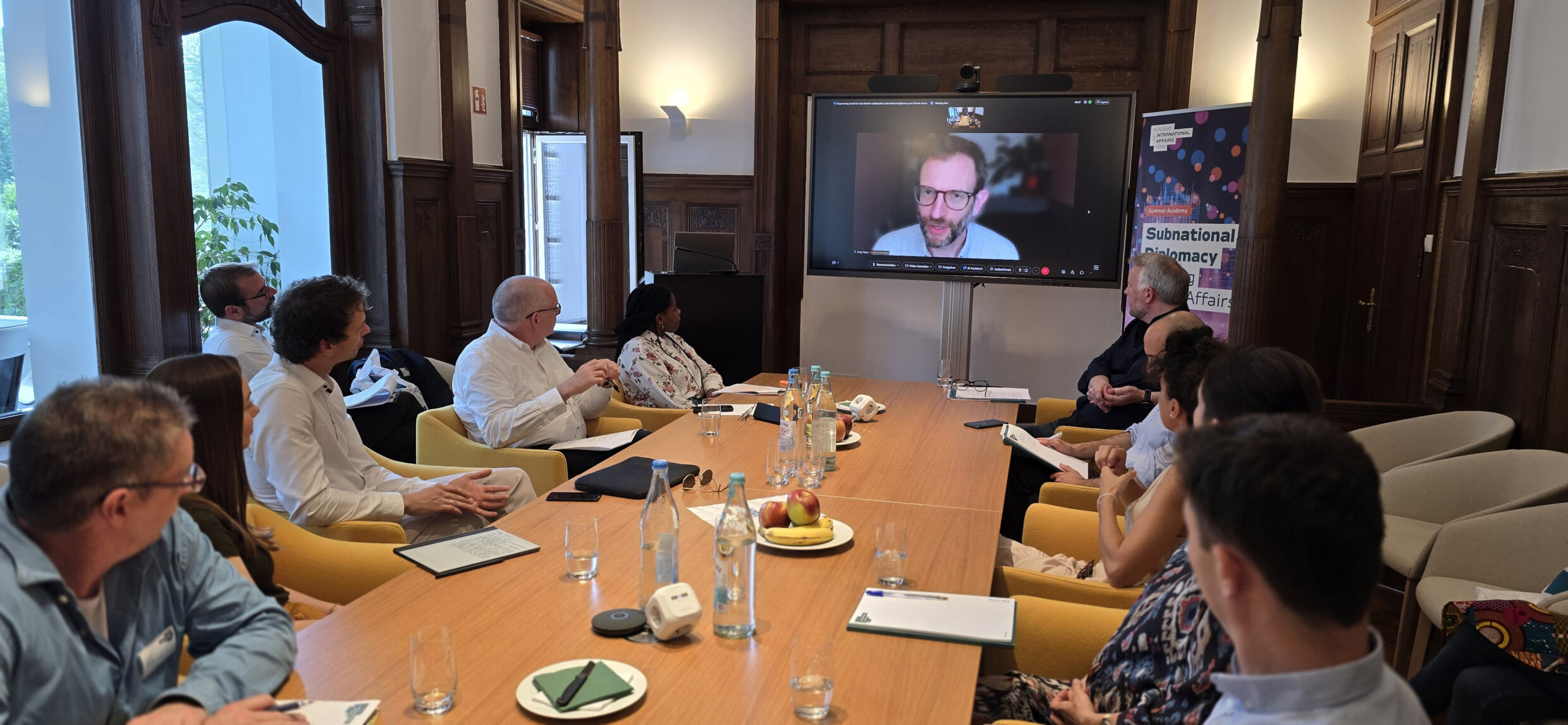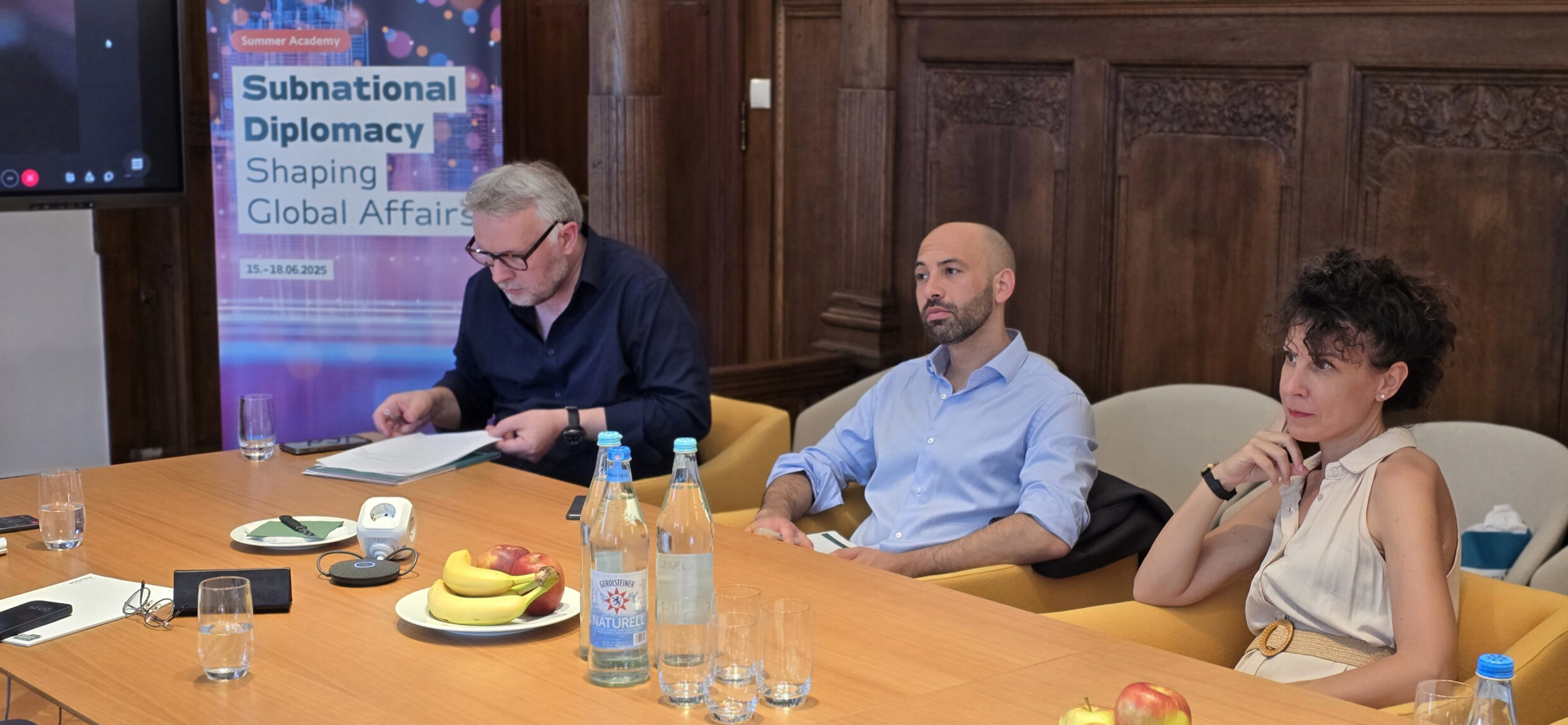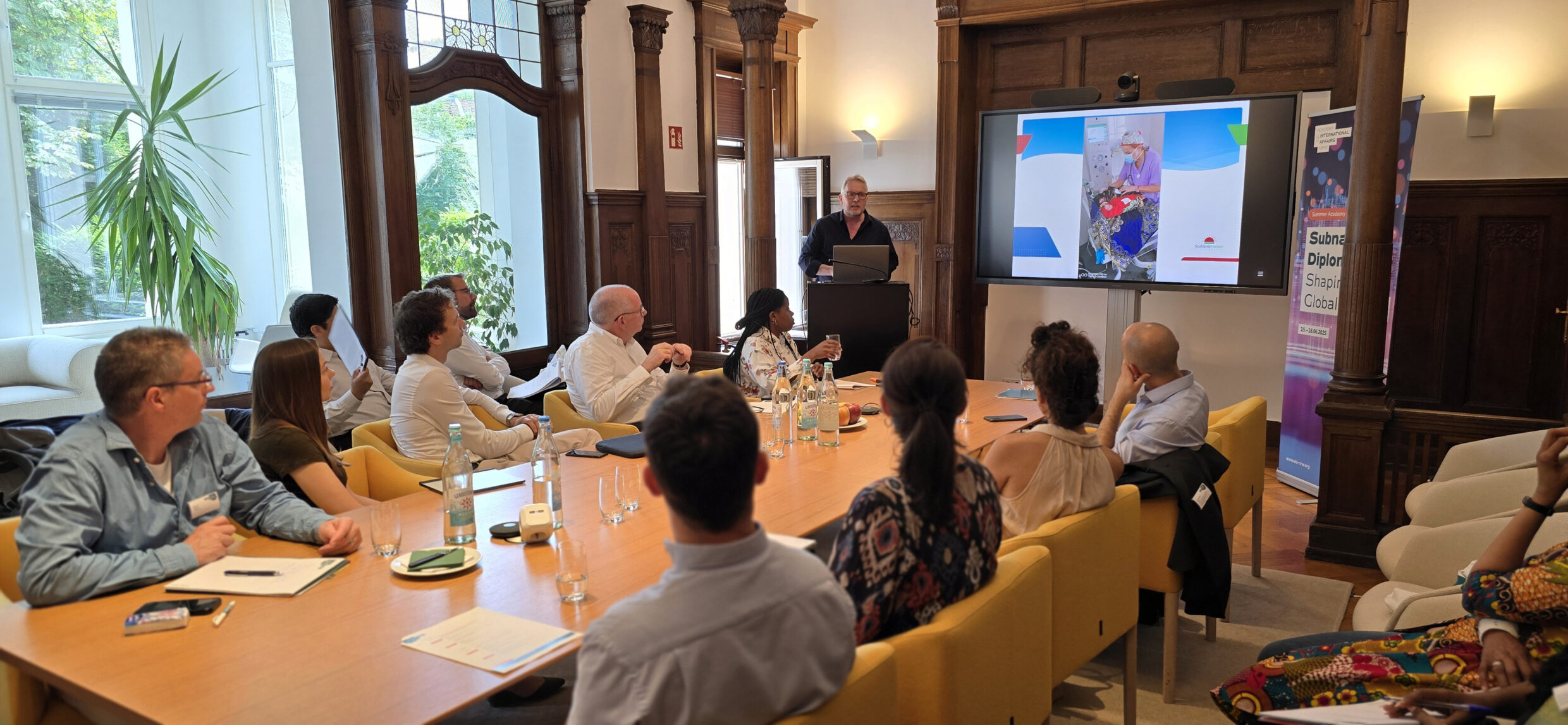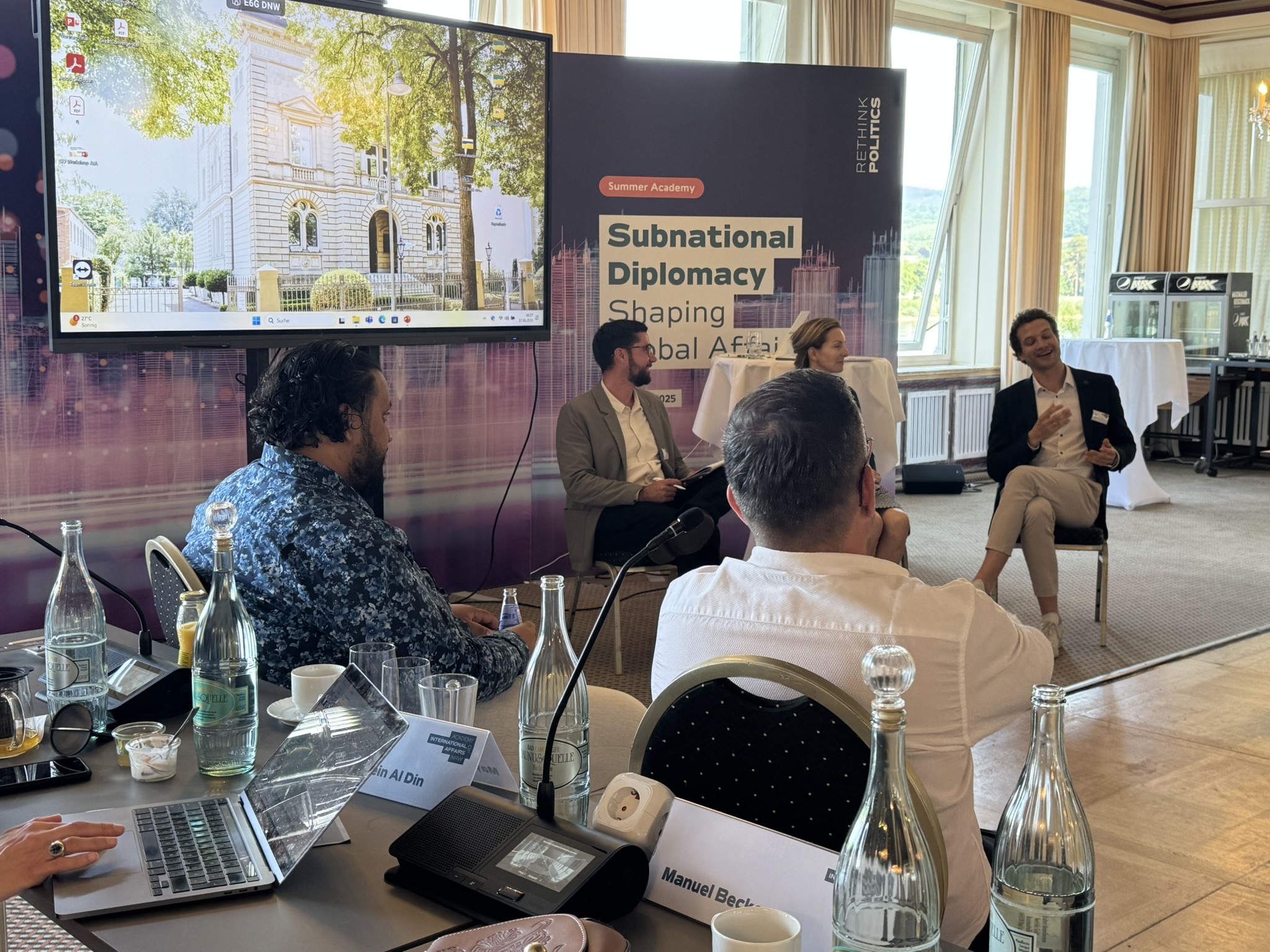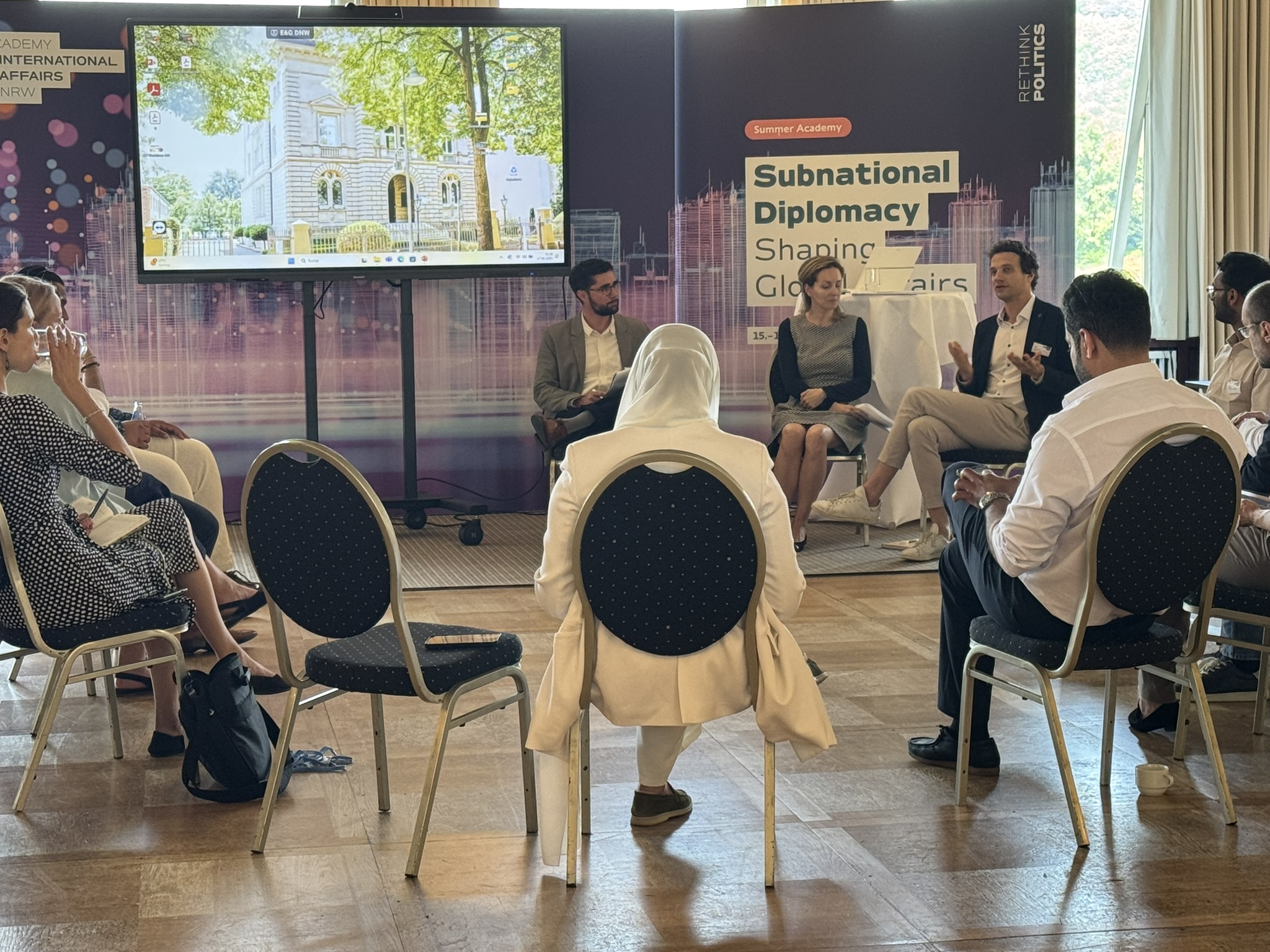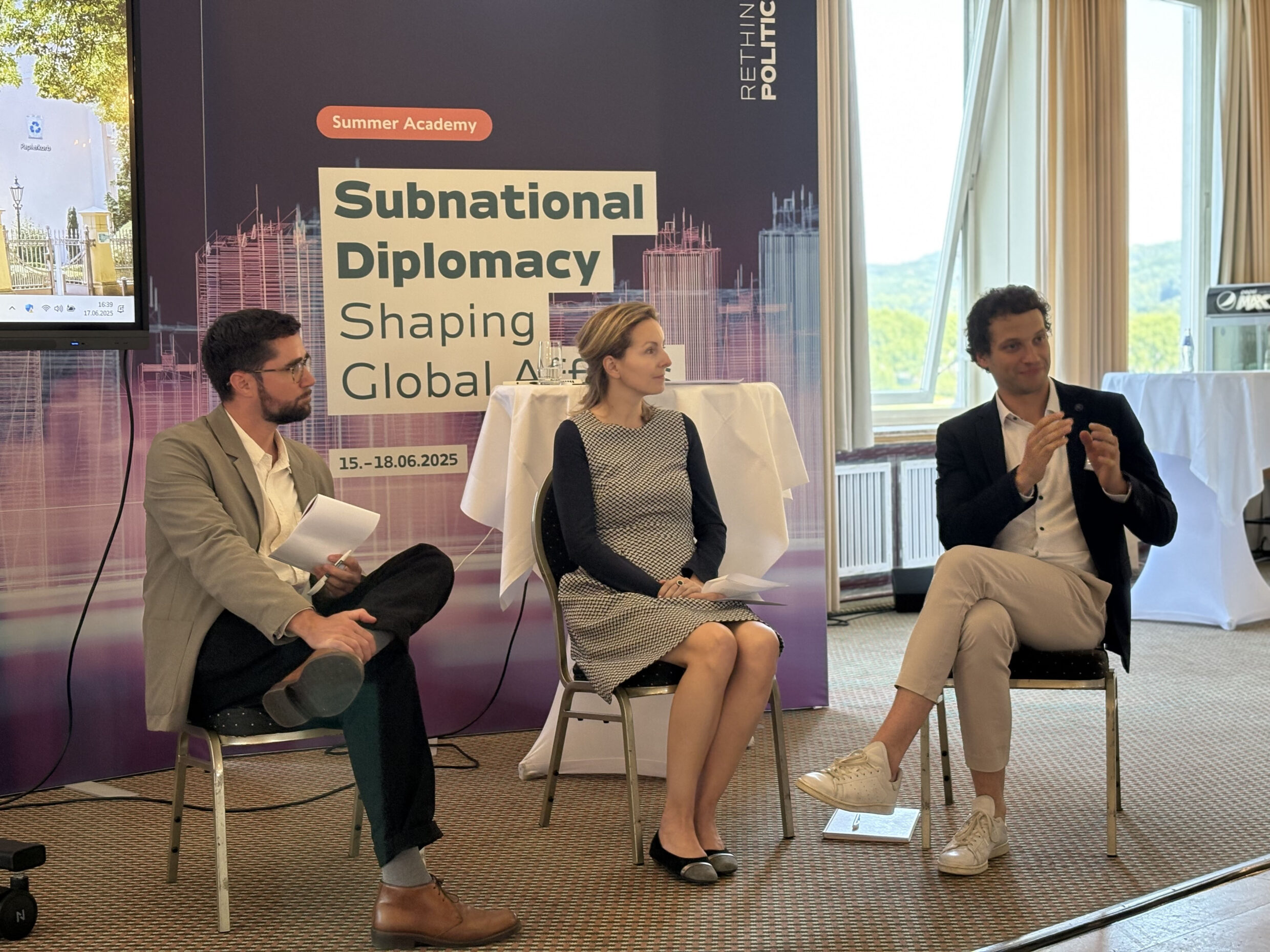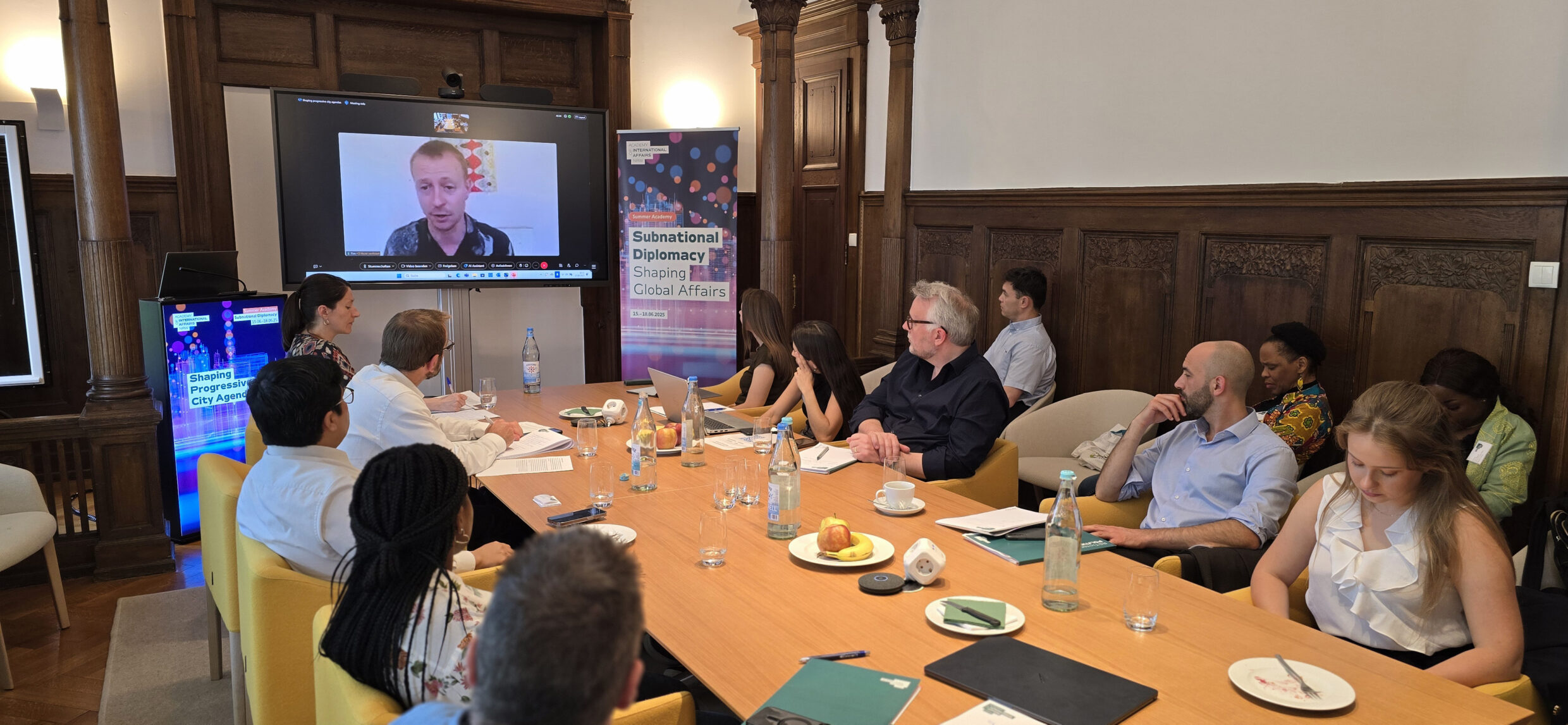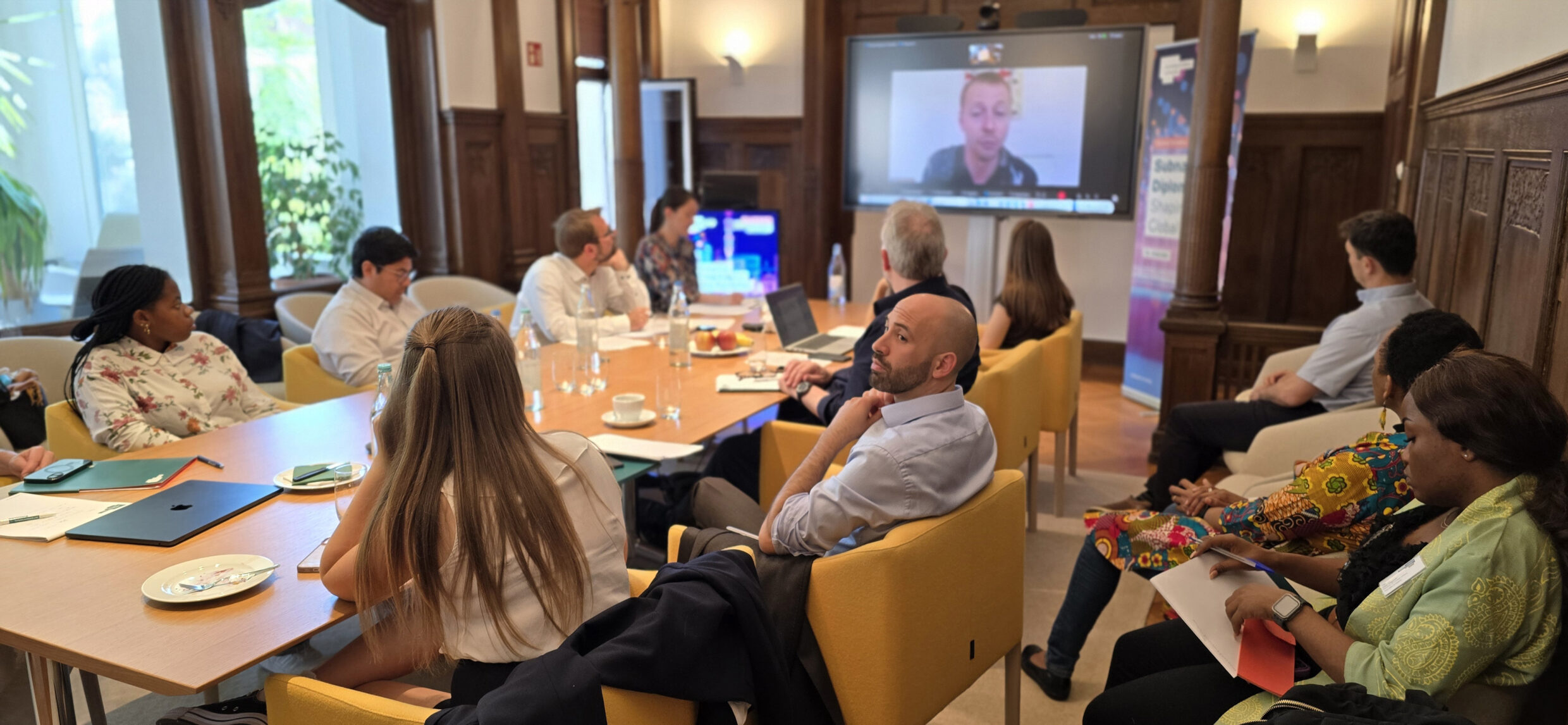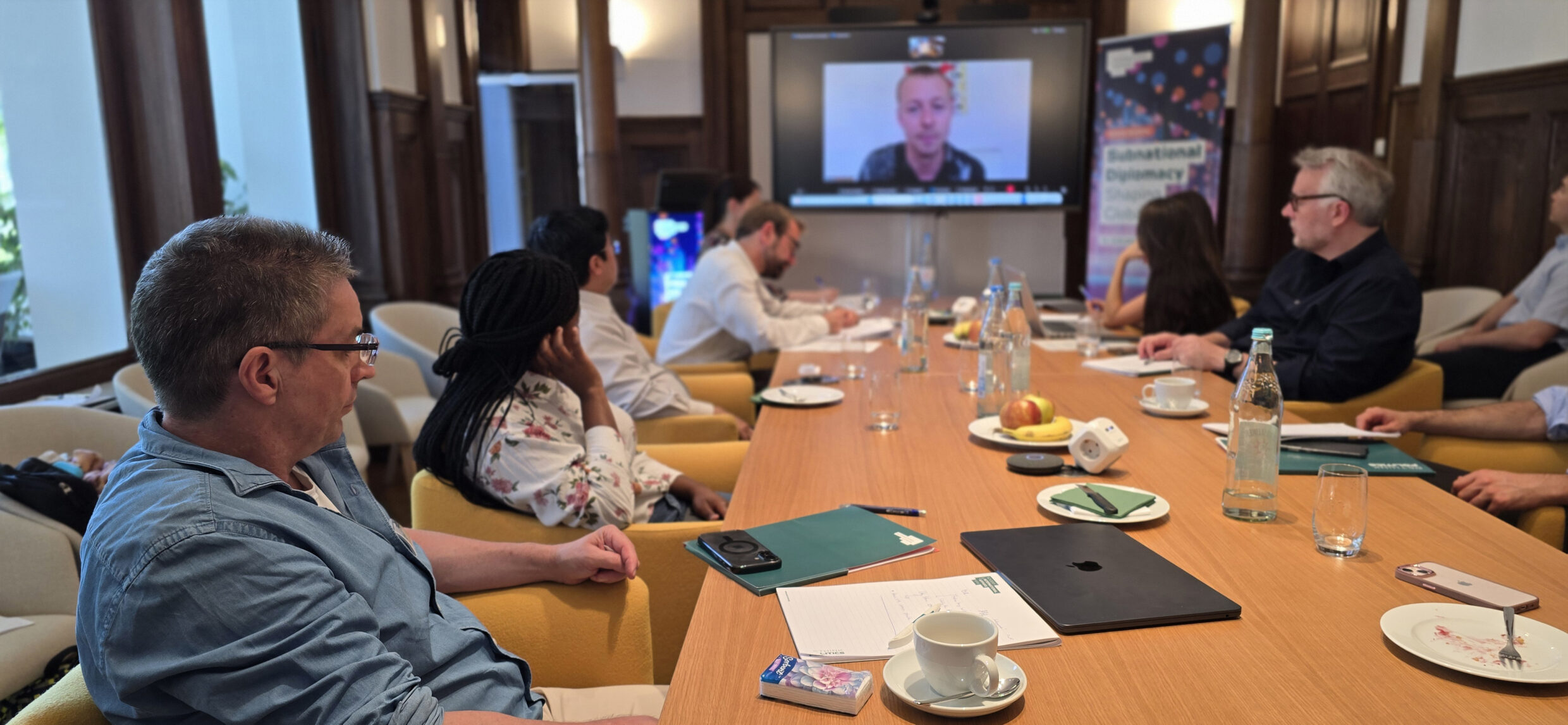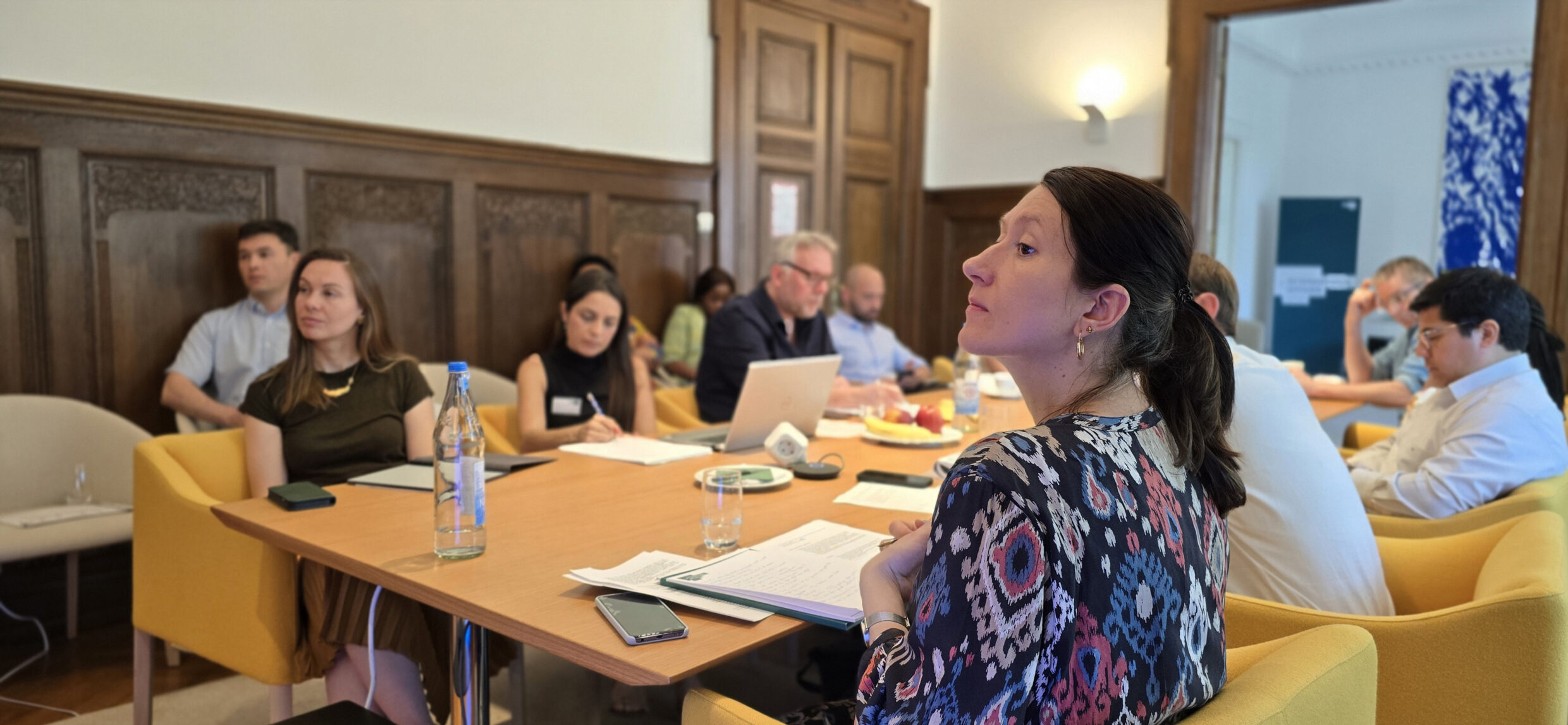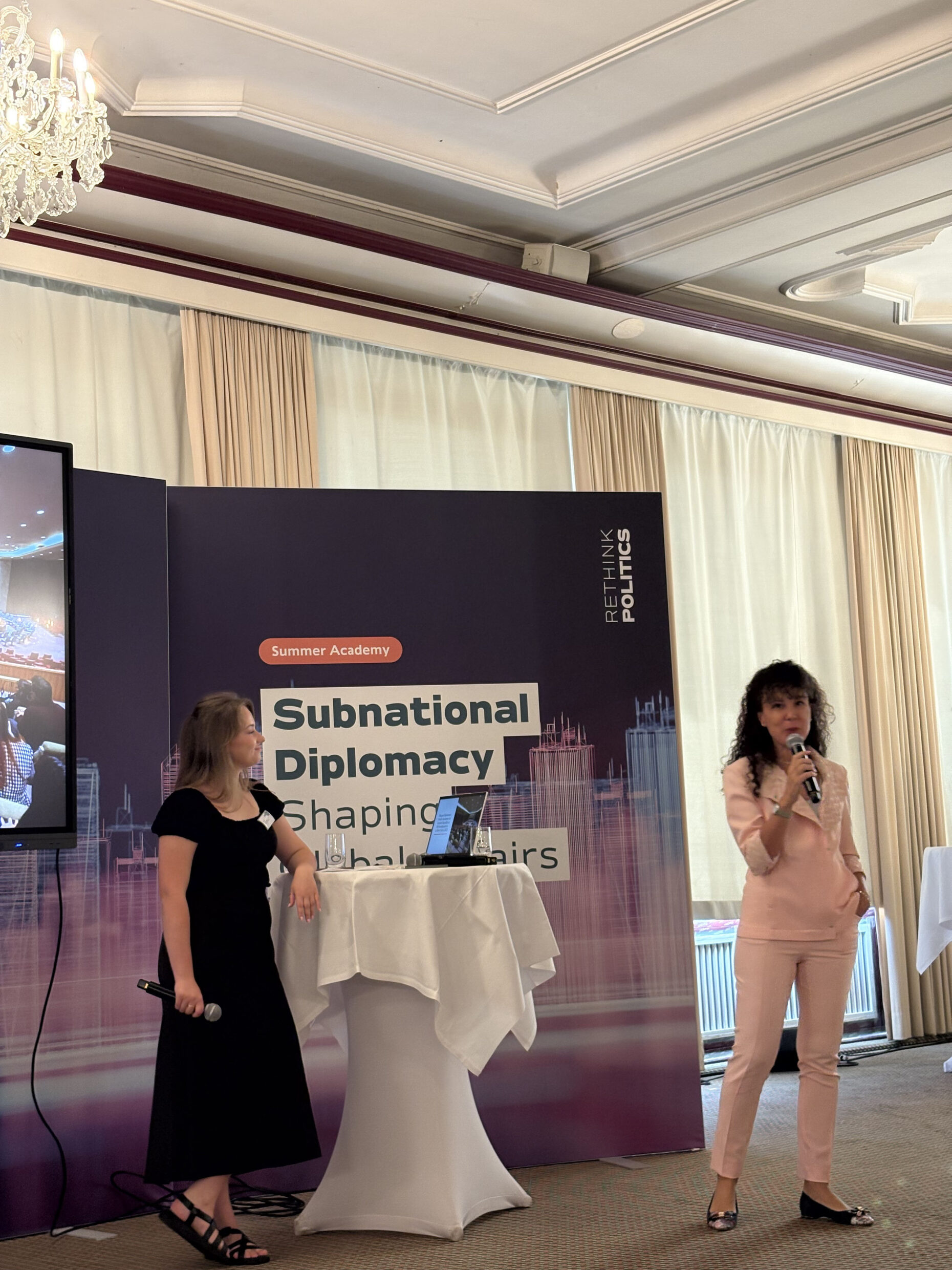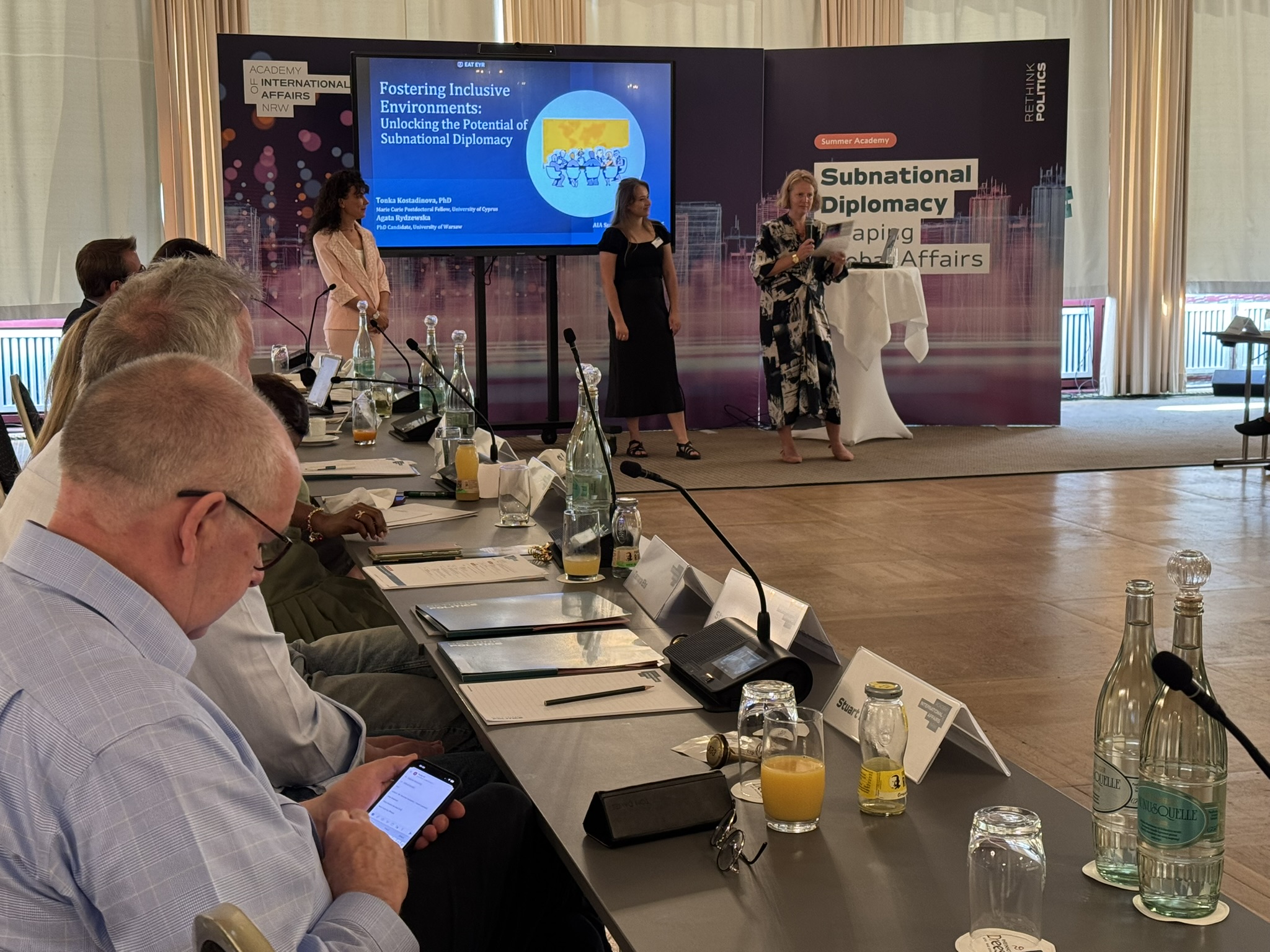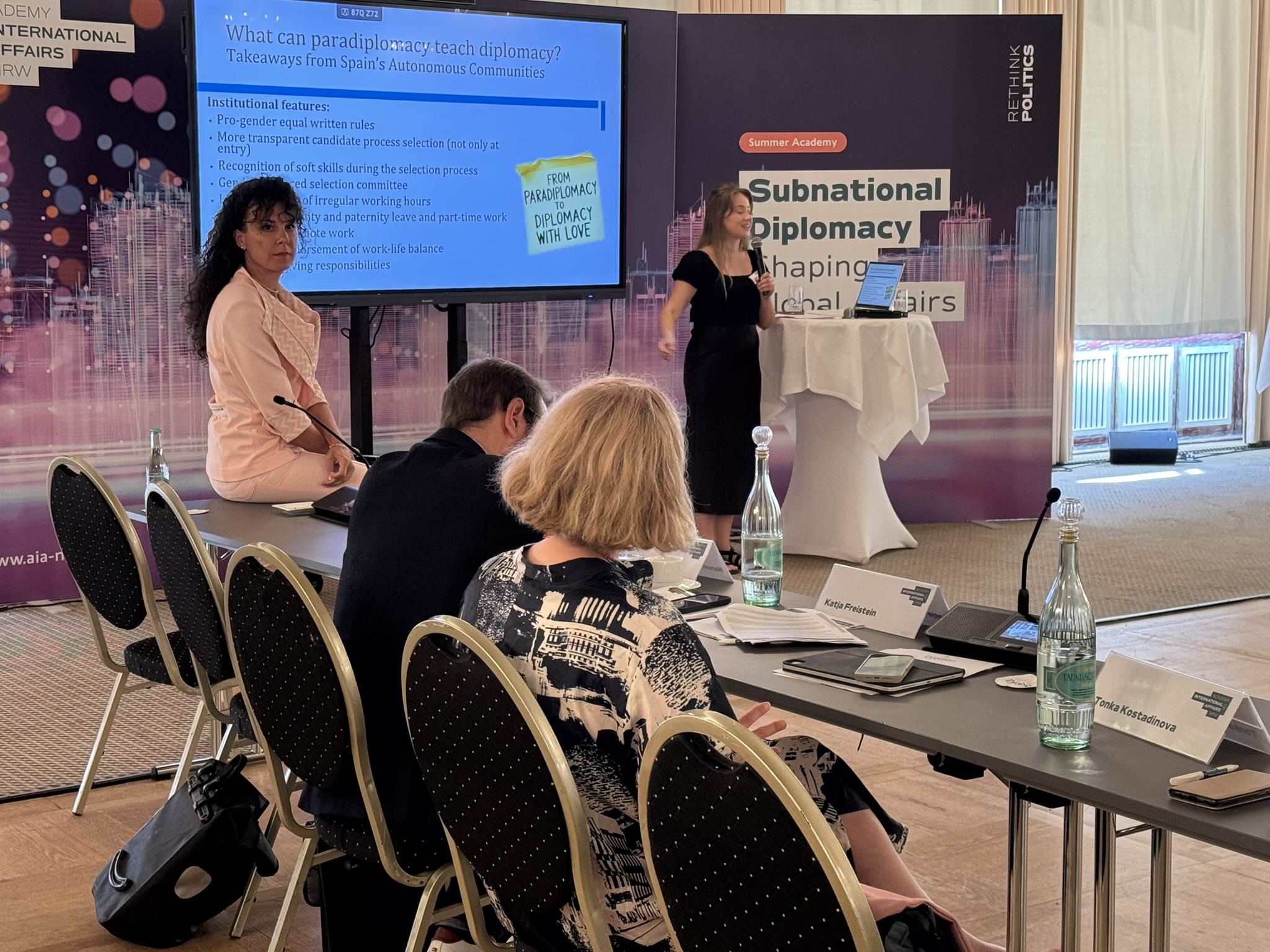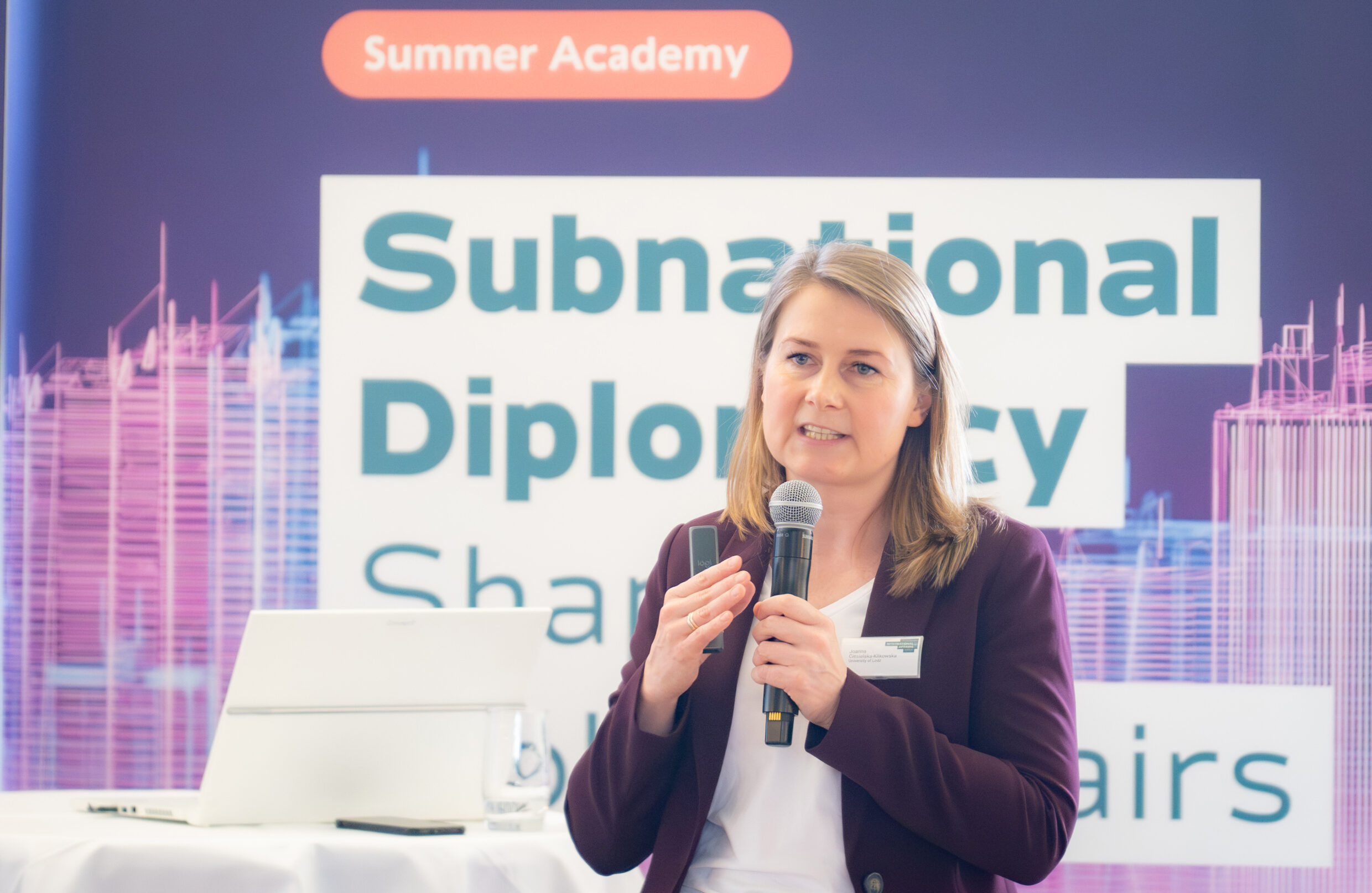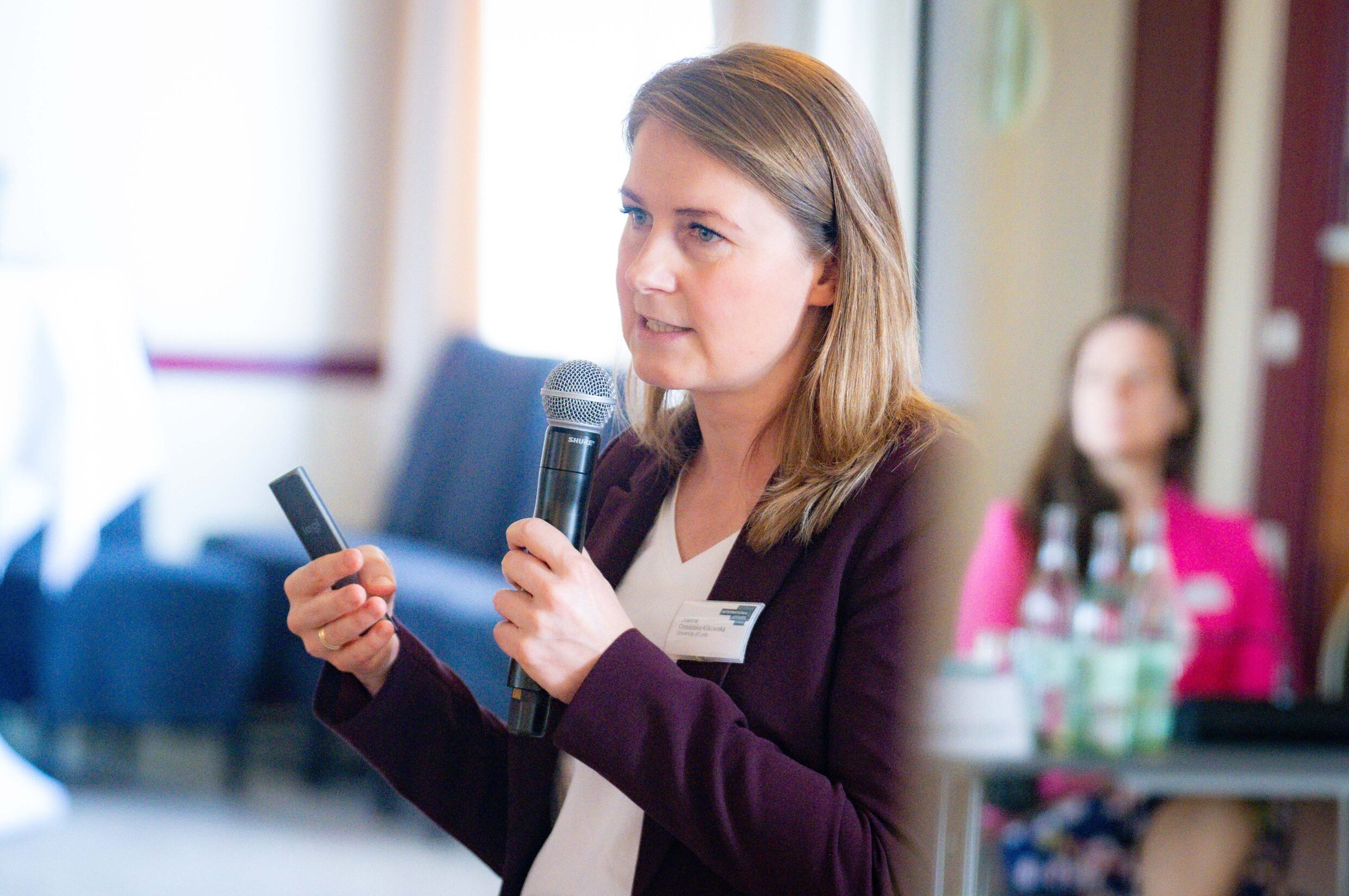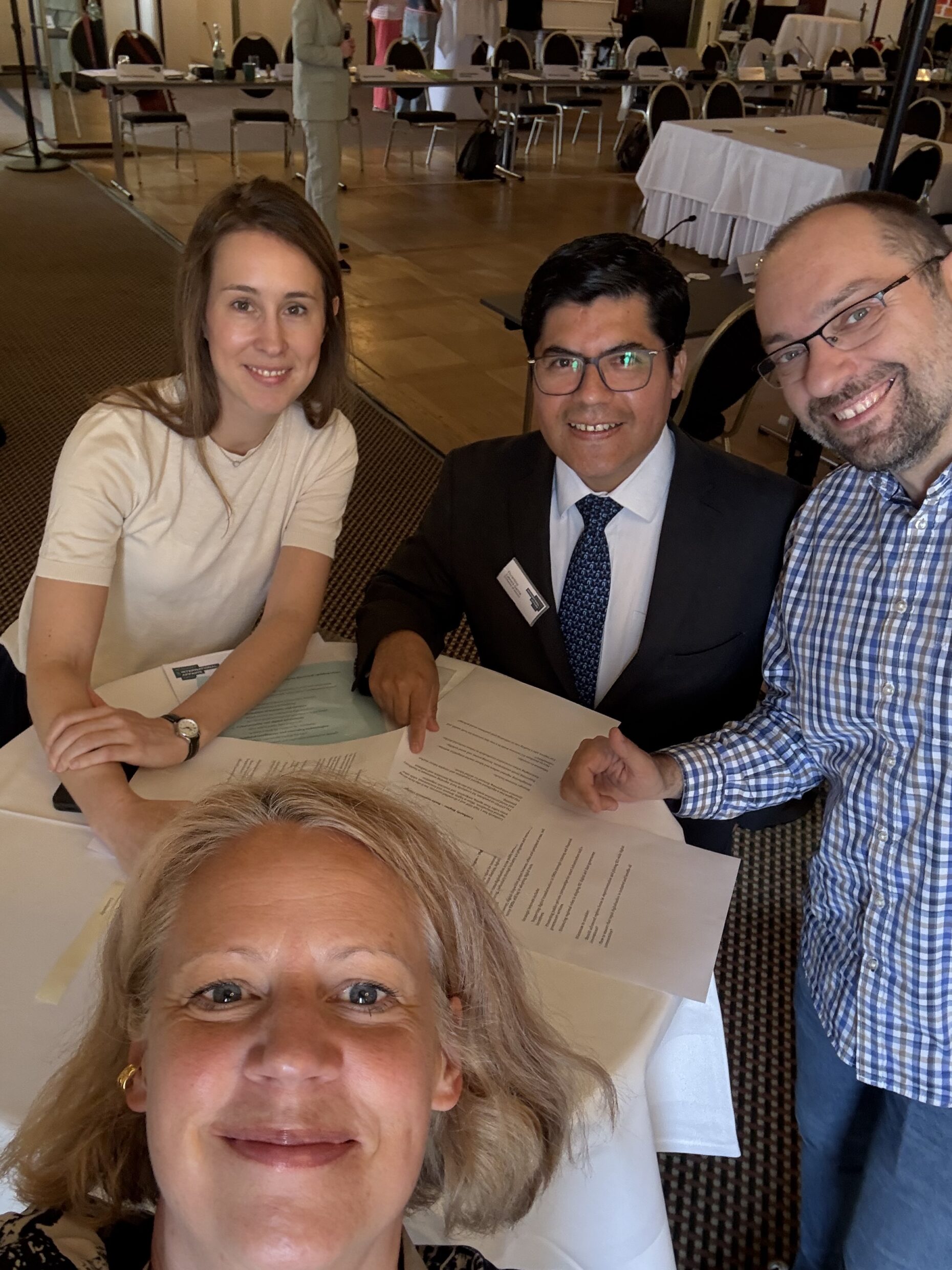Shaping Global Affairs
The Summer Academy has become a valued tradition at AIA NRW. Over three and a half days, a diverse group of academics, diplomats, experts, and practitioners in the field of subnational diplomacy came together, forming a close-knit community and developing a shared repertoire of knowledge and approaches.
Insightful presentations by leading scholars and representatives from cities across the United States and Europe offered rare perspectives on the unique challenges of subnational diplomacy, often in comparison with the more established practices of national diplomacy. Through interactive workshops, simulations, and role plays, participants from varied professional backgrounds explored the practical realities of city diplomats, regional leaders, and public and private stakeholders. These hands-on sessions highlighted the specific challenges subnational actors face and the innovative ways they address them.
The inclusive and open-ended nature of subnational diplomacy encouraged fresh and constructive debate, distinct from the discussions that often characterise international forums dominated by state actors. A key outcome was a shared commitment to strengthening cooperation among regions, cities, and city networks on pressing global issues such as socio-economic transition, ecological transformation, and inter-regional trade. An equally important aspiration was to bridge the gap between subnational and national diplomacy through enhanced training programmes, structured knowledge exchange, and sustained dialogue.
The conversations that began at the Summer Academy will continue, and AIA NRW will remain a dedicated platform for advancing this vital and evolving field of diplomacy.
Towards a Brighter Heartlands Future: US and European Local Leaders on a Successful Heartland Region Economic and Social Renewal
At this year’s Summer Academy, leaders from Europe and the U.S. hosted by our Fellow John Austin explored how post-industrial regions can revitalise economically, socially, and democratically. Thomas Dermine (Former State Secretary for Economic Recovery and current Mayor of Charleroi, Belgium) highlighted Charleroi’s transformation through biotech and talent development. Jürgen Hein (Managing Director, University Alliance Ruhr) discussed the Ruhr region’s shift from coal to a green economy, stressing the need to work with communities. U.S. mayors like Ryan Sorenson (Sheboygan, Wisconsin) and Steve Patterson (Athens, Ohio and President of the National League of Cities, US) emphasised subnational diplomacy and grassroots leadership in climate and economic renewal. Civic strategist Anne Mervenne reflected on democratic fragility in the U.S., while Martina Guzman shared Detroit’s story of decline, resilience, and how policy failures erode public trust. Together, they called for rethinking regional narratives, investing in human capital, and forging international city-to-city partnerships. The future of the heartlands depends on inclusive leadership, regional cooperation, and renewed civic trust—bridging the gap between people and power.
Video Interviews: What Role Do Cities and Regions Play in Shaping Global Solutions From the Ground Up?
Thomas Dermine (Former State Secretary for Economic Recovery and current Mayor of Charleroi, Belgium) discusses how regional innovation and talent development can revitalise post-industrial areas and build bridges beyond national capitals.
Mayor Steve Patterson (Athens, Ohio and President of the National League of Cities, US) brings the transatlantic view—highlighting how cities, through networks and climate action, can lead where national governments fall short.
Mayor Ryan Sorenson (Sheboygan, Wisconsin) shares how local leadership and international partnerships help small cities tackle big issues—from manufacturing resilience to water diplomacy.
Together, they reflect on how local leadership, subnational diplomacy, and international collaboration are key to building a more resilient, inclusive future.
The Link Between Traditional Diplomacy and Paradiplomacy
At the AIA Summer Academy 2025, Joanna Ciesielska-Klikowska and Tomasz Kamiński (University of Łódź) explored the evolving relationship between traditional diplomacy and paradiplomacy. As global challenges grow more complex, cities and regions are increasingly stepping into roles once reserved for nation-states.
The session highlighted how subnational actors contribute to foreign policy by fostering international cooperation, serving as peace-brokers, and mitigating local impacts of global crises. A key case study—based on a survey of 745 EU cities—examined city-to-city partnerships with China and the U.S., revealing strong engagement but weak policy coordination.
Participants took part in interactive tasks assessing the opportunities and challenges of paradiplomacy. They proposed solutions to improve vertical alignment, such as incentive-based coordination and enhanced communication between governance levels.
Municipalities: A Key Element of Germany’s China Policy?
A joint study by the “Stiftung Wissenschaft und Politik” (SWP) and the Friedrich-Ebert-Foundation (FES) on “Municipalities: A Key Element of Germany’s China Policy?” maps and analyses different activities by Chinese private companies, cultural and educational institutions and many other actors in German cities and city regions, including the Düsseldorf/Duisburg cluster.
Drawing on the results of the study and her own research on how German and Chinese cities are linked through cooperation in different fields, AIA Fellow Anna Shpakovskaya discussed the potential but also the misperceptions of China with Andrea Frenzel, Niels Hegewisch and David Schulze. The lack of willingness to see China as a potential partner instead of rival was identified as a major impediment to closer German-China relations. Therefore, an important factor to overcome this could be personal experience gained in school and student exchanges, which then allows for a more nuanced understandings of the Chinese context and can be used to build long-lasting, meaningful interest to engage without prejudice.
Science Diplomacy
A standout session on Science Diplomacy was led by Charlotte Gehrke of the German Institute of Development and Sustainability (IDOS). After a concise introduction to the concept, participants engaged in a unique scenario exercise: negotiating the 1973 Agreement on the Conservation of Polar Bears—not just as states, but also as non-state and more-than-human actors, including the polar bears themselves.
This imaginative approach sparked vibrant discussion and demonstrated how empathy, scientific insight, and inclusive perspectives can enrich global governance processes. Participants explored the value of integrating science into diplomacy to address complex ecological and international challenges. Charlotte Gehrke’s research focuses on the intersections of science communication, policy, and diplomacy, particularly in polar and ocean governance. Her workshop highlighted the potential of science diplomacy to connect actors across disciplines—and even species—in shaping a more cooperative global future.
Local Diplomacy and Alternative Governance: Pathways to Stability, Justice, and Conflict Transformation
When protracted domestic and transnational conflicts are difficult to solve or turn violent, state governments are not always able (and willing) to address them. Often, they lack authority to do so. In their comparative observations on two large states with many different societal cleavages, AIA Fellow Ifedayo Grace Malachi and Summar Iqbal Babar highlighted the role of local diplomacy by actors like local chiefs or religious leaders in mediating conflicts through alternative forms of authority. In discussion with Mujtaba Ali Isani (DAAD) and Oyewole Simon Oginni (BICC) they weighed the potential for peaceful transformation against the risks for legitimate state authority. Alternative governance forms build on the authority of (mostly male) leaders in religious or local communities and include practices like meetings, symbolic rituals and charismatic leadership, which can overcome conflict but also risk undermining state authority.
Subnational Diplomacy and Multi-Level Governance
In the context of the Summer Academy, the German Aerospace Center (DLR), the IQIB and Hive Ventures have conducted a workshop that has leveraged the collective intelligence of diplomats, scholars and practitioners from all over the globe. The participants have been divided into groups and engaged into a multi-level governance roleplay that included city governments (“cities”), subnational regional entities (“regions”), nation states (“states”) and international organizations. The workshop consisted of two phases – a future workshop phase and a world café phase – during which the participants collectively elaborated four courses of action on how to embed subnational diplomacy within an effective multi-level governance and identified the key factors necessary to do so.
From Gridlock to Groundwork: How Cities lead Climate Mobility Action in Times of National Uncertainty
This timely panel organized by Janina Stürner-Siovitz (European Philantrophic Initiative for Migration) brought together leading voices to explore how cities are shaping the global response to climate mobility. As climate change increasingly drives displacement, cities are emerging not just as responders, but as strategic actors in international policymaking.
Helen Elizabeth Yu (Mayors Migration Council) and Paul Costello (German Marshall Fund of the United States) shared how cities are forging both local and global partnerships to drive proactive solutions. From integrating migration into climate planning to advocating for local perspectives in global forums, the panel highlighted the power of city diplomacy in addressing this urgent challenge.
The session made clear: cities are not just on the receiving end of climate mobility—they are vital players in designing inclusive, forward-looking responses. In a changing world, subnational diplomacy is becoming essential to climate justice and human mobility governance.
Empowering Youth for Cross-Border Collaboration: Subnational Diplomacy and Climate Action
AIA Fellows Chisomo Banda and Stuart MacDonald, together with Stuart Brown (Scotland-Malawi Partnership) and Andy Paice (CrownShy), showed how the Scotland-Malawi Partnership can serve as a model for youth-led climate diplomacy. The focus was on the digital advisory platform “Polis” and its potential. It discussed how tools like this can feed into COP 30 advocacy work, while demonstrating how genuine cross-border cooperation can emerge from sub-national relationships.
Local Democracy and Innovation to Resist Illiberal Governments
The role of cities is closely connected to the global context, as the previous panel showed, but more even to the domestic politics that can provide good frameworks but also pose impediments, as the panel chaired by Paul Costello (German Marshall Fund) laid out. Presenting two case studies from Budapest and Vienna, the speakers Tamara Ehs (AIA NRW) and Oliver Pilz (Policy Secretary to the Mayor of Budapest) talked about challenges to democracy on the local level. Since Budapest is known to be a liberal stronghold in a national context that does not always pursue the same values, the potential for conflict but also for establishing a force of resistance against illiberal tendencies are evident. The situation of inhabitants without Austrian citizenship in Vienna, as the by far largest city in Austria, was addressed as a challenge for political inclusion, since migrants have no voting rights in elections. At the same time, political participation is possible in different, often alternative formats, which make cities important sites of practicing and including their residents into local democracy.
Shaping Progressive City Agendas
Meanwhile, AIA Fellows Debora Prado and Karolina Kluczewska discussed with Gabriela Iacobuta (GEF) and Tim White (LSE London) about actors developing progressive urban agendas. The main focus was on issues of climate change and socially just housing. The case studies presented from Brazil, the UK, Germany, Poland and Tajikistan made it clear that despite the different contexts, many challenges are very similar.
Video Interview: What Can Cities Do to Tackle Climate Change?
In this video, climate and sustainability expert Gabriela Iacobuțã explores how cities can address the challenges of climate change—and how taking action can bring powerful local benefits, from cleaner air to stronger communities.
Fostering Inclusive Environments: Unlocking the Potential of Subnational Diplomacy
One of the key differences between established forms of national diplomacy and emerging forms of subnational diplomacy are their variety of actors and the way the practices are organised. To assess the potential of subnational diplomacy as tools for addressing important political issues, Tonka Kostadinova (Marie Sklodowska Curie Fellow, University of Athens/University of Cyprus) and Agata Rydzewska (University of Warsaw), analysed whether subnational diplomacy has the potential to be more inclusive and equitable and could thus be more suited to be oriented toward cooperative outcomes. Engaging the audience, they allowed the group to share their perceptions and confront their own pre-conceived notions that can only be overcome by further exchange and efforts. Finally, in their reflections on lived experience and close field research the two experts showed what good practices can look like, stressing that the prestige of subnational remains lower but its impact may actually increase.
Regional Diplomacy Simulation
In the final session, Joanna Ciesielska-Klikowska (University of Łódź) built on the actual case of inter-regional cooperation between European core regions and their meetings she had attended. The participants were given some difficult task, namely representing their region’s interest in policy field groups (for example environment and digitalisation) and agreeing on priority issues within their regional group. The delegates of such diverse regions as Flanders or Tuscany had very different conditions to pay attention to, for example de-industrialisation, water scarcity, air pollution or soil erosion and, finally, were asked to create a joint declaration. Similar to meetings playing out in real life, the desire to cooperate and exchange knowledge emerged in all groups, while agreeing on priority issues in a joint declaration was not easy and uncontroversial. In the end, all participants were happy to end the session with a quite tangible impression of the complexity and challenges of regional diplomacy.
